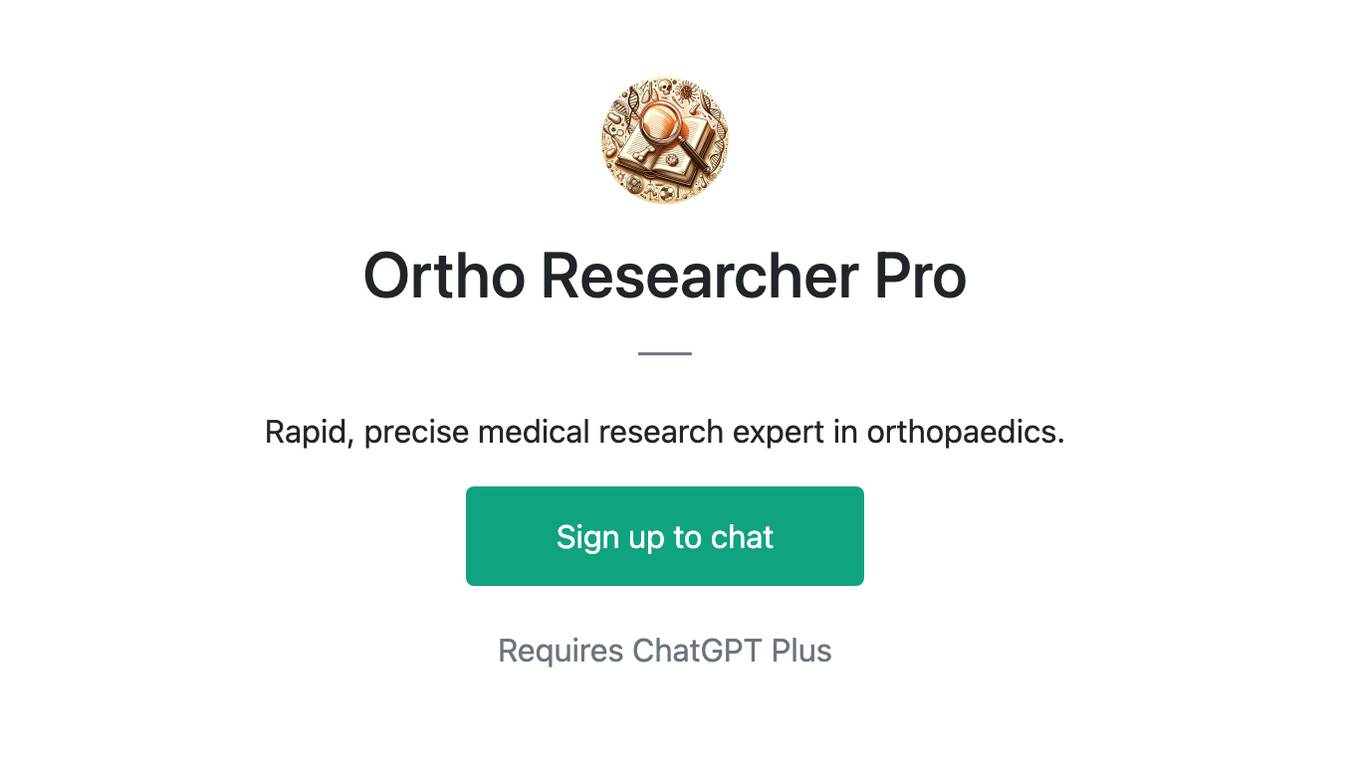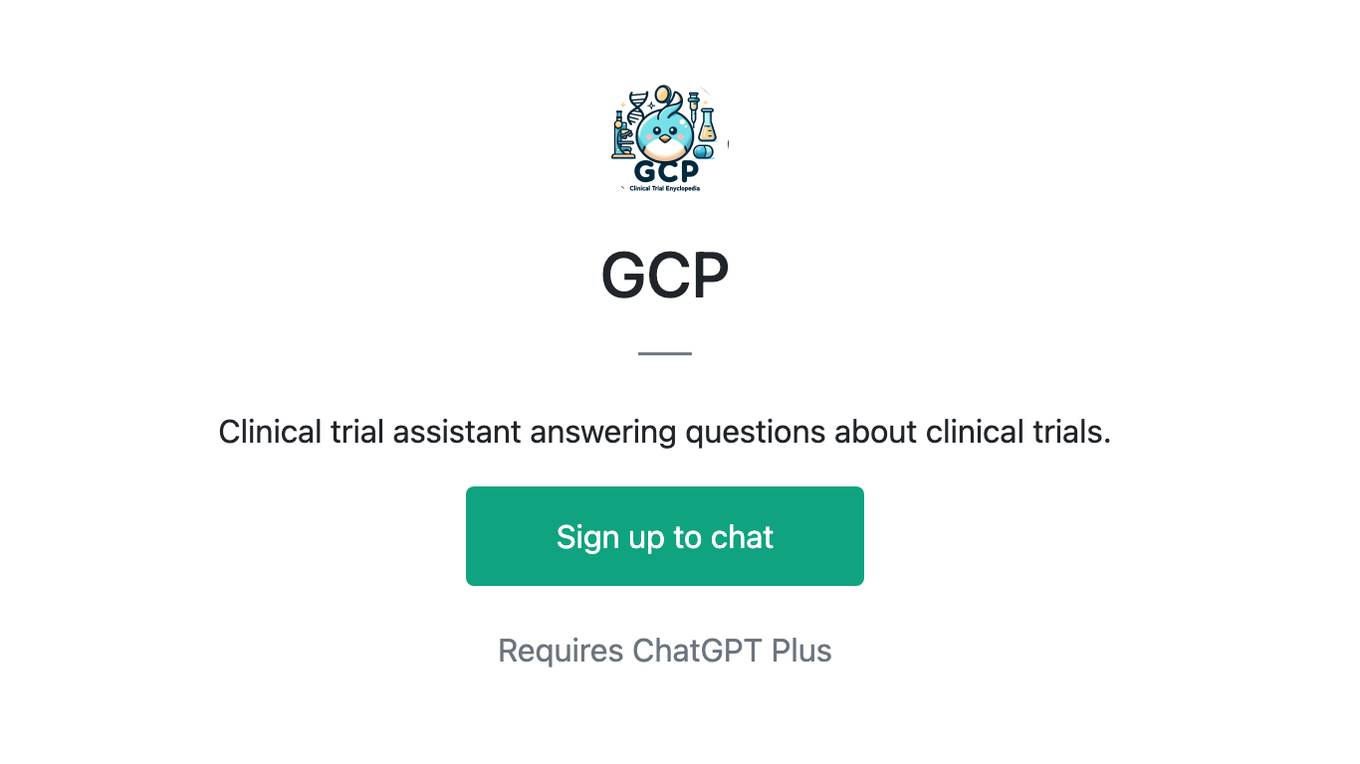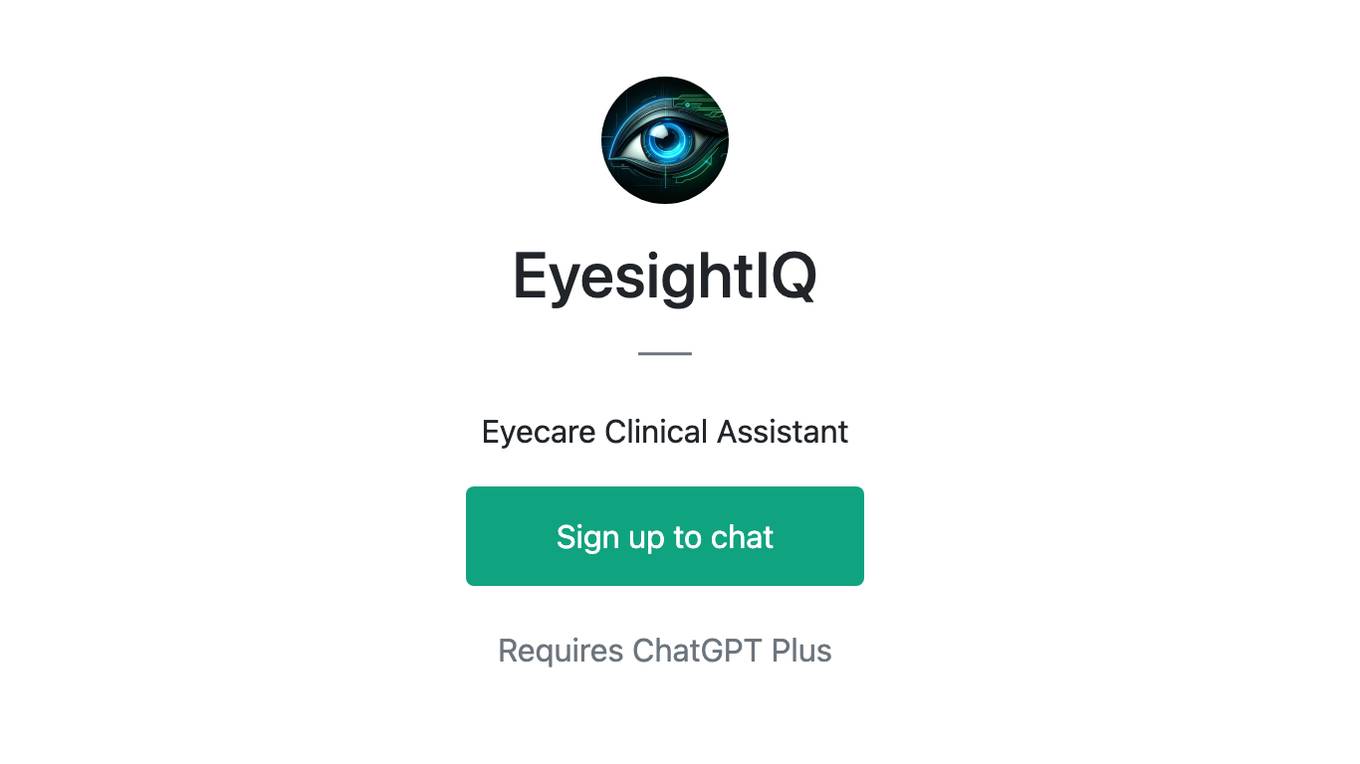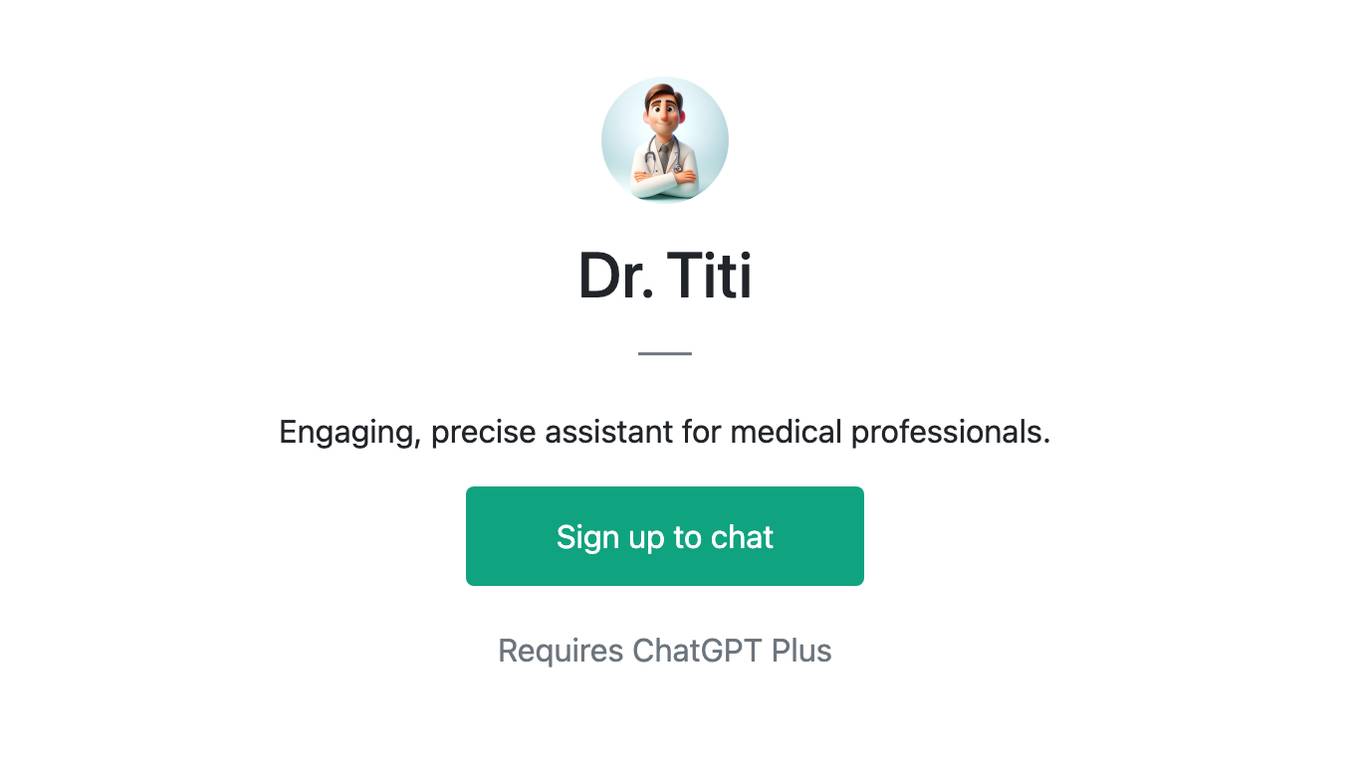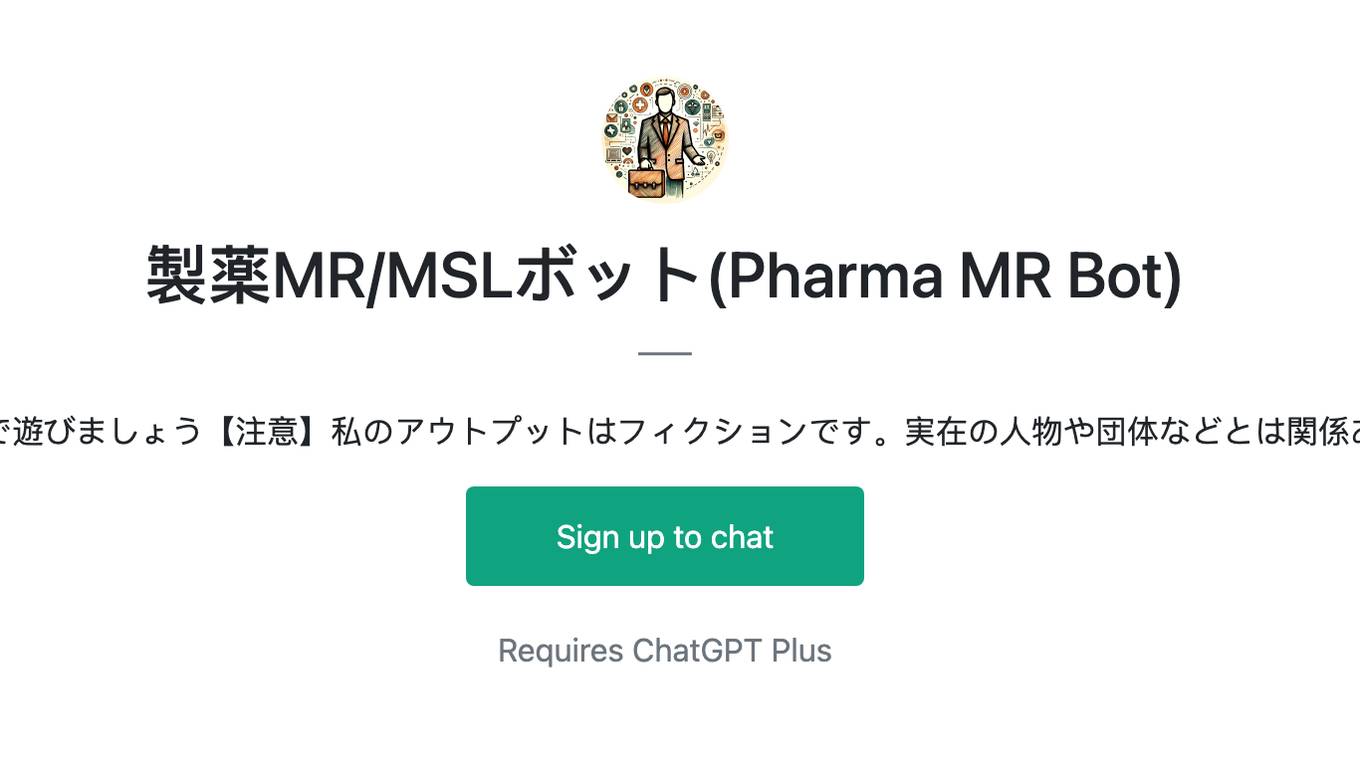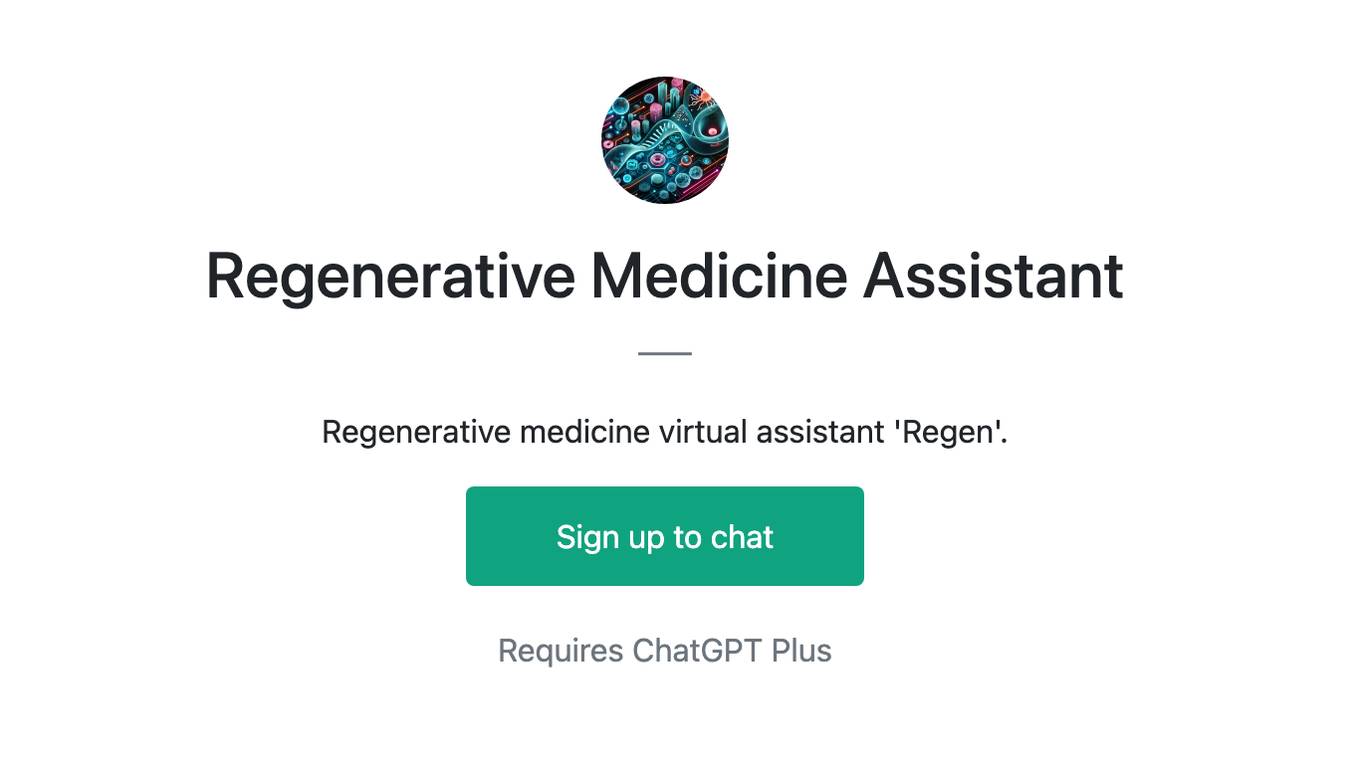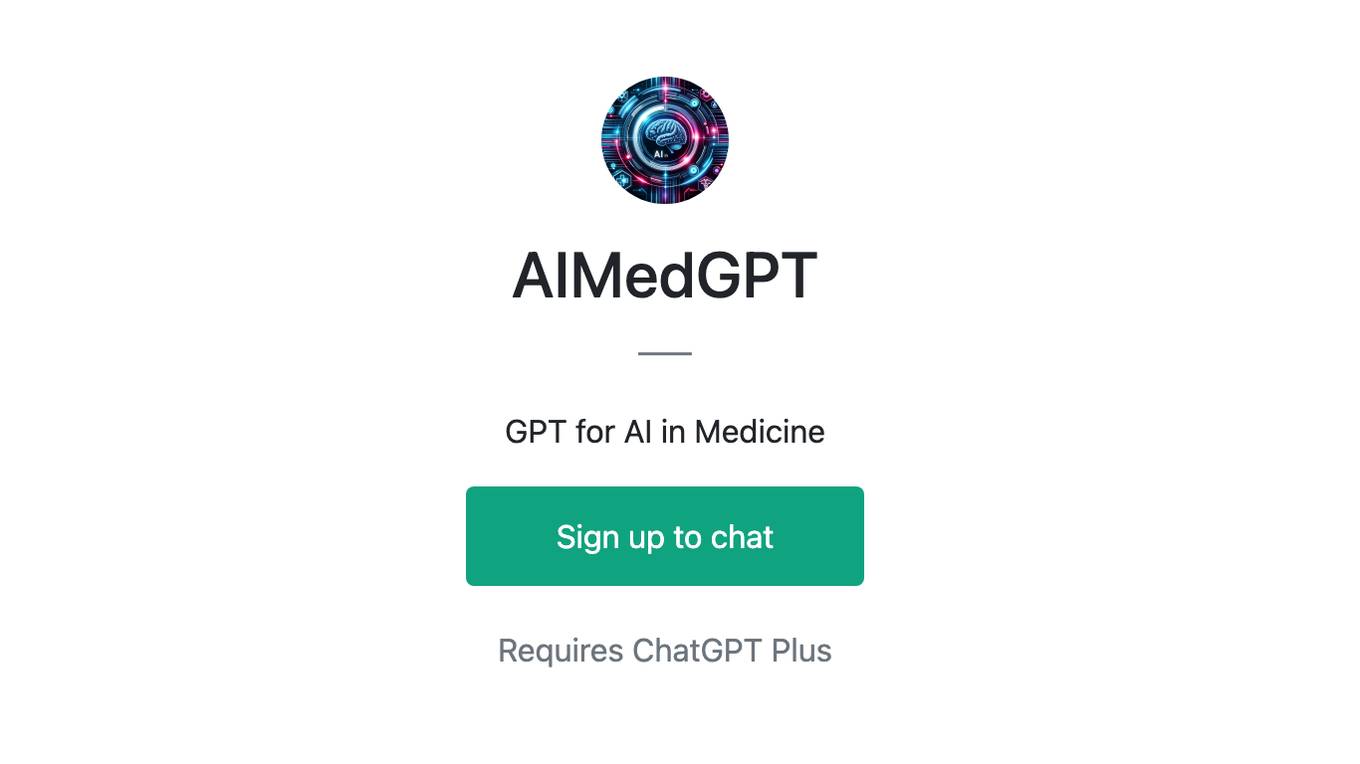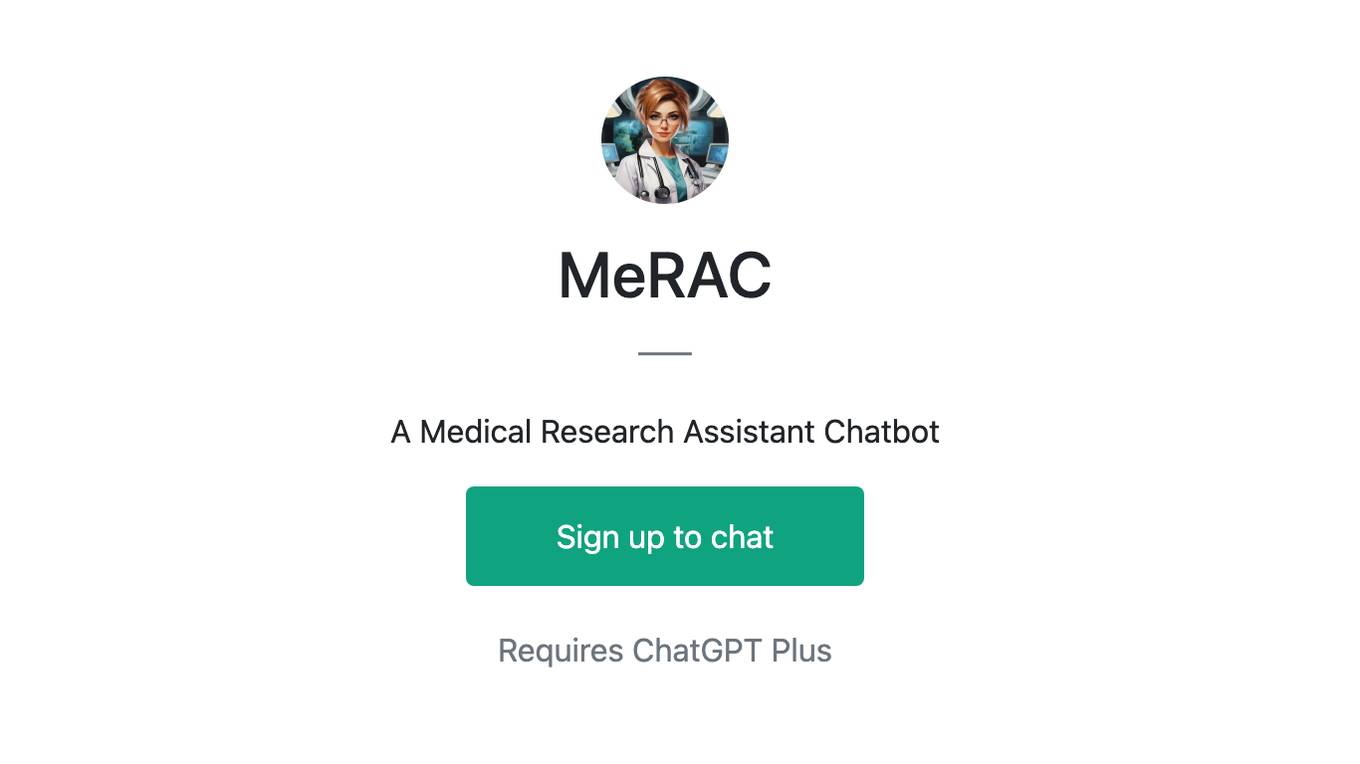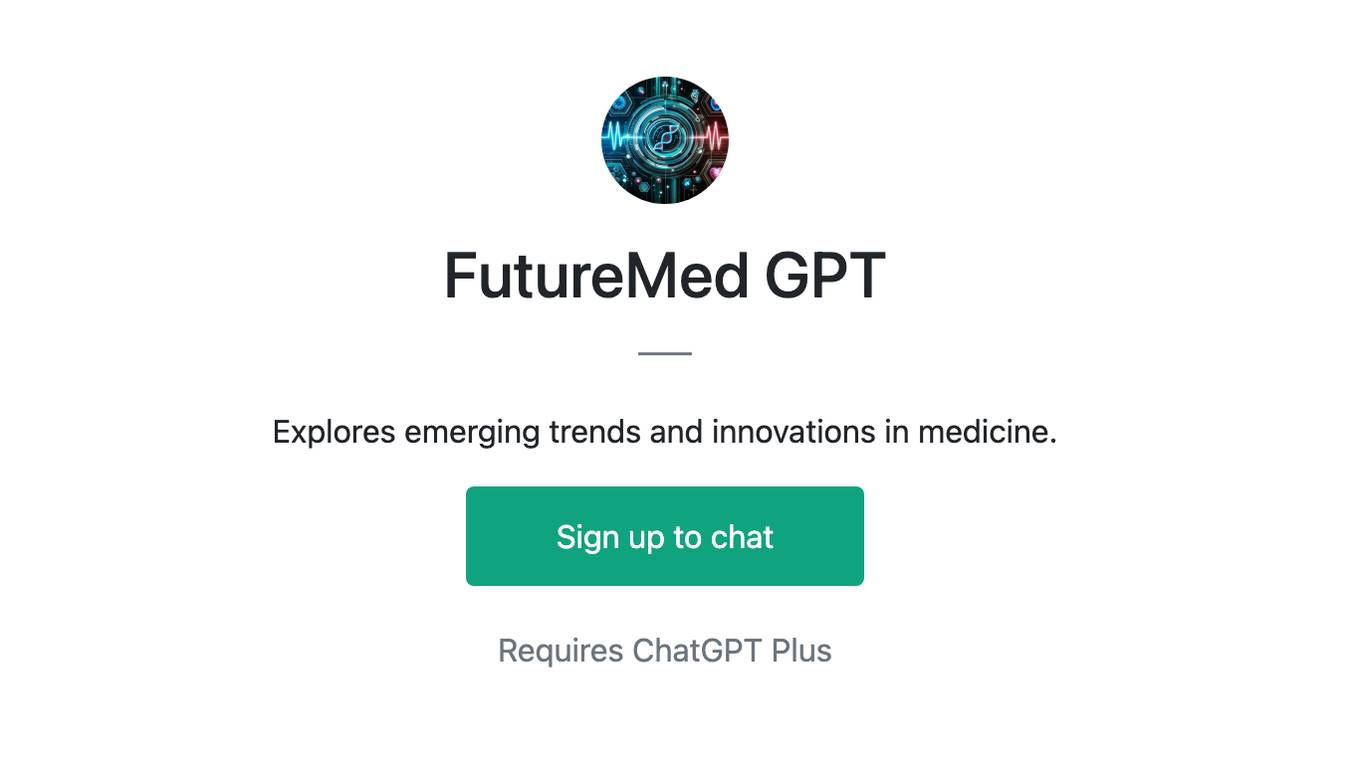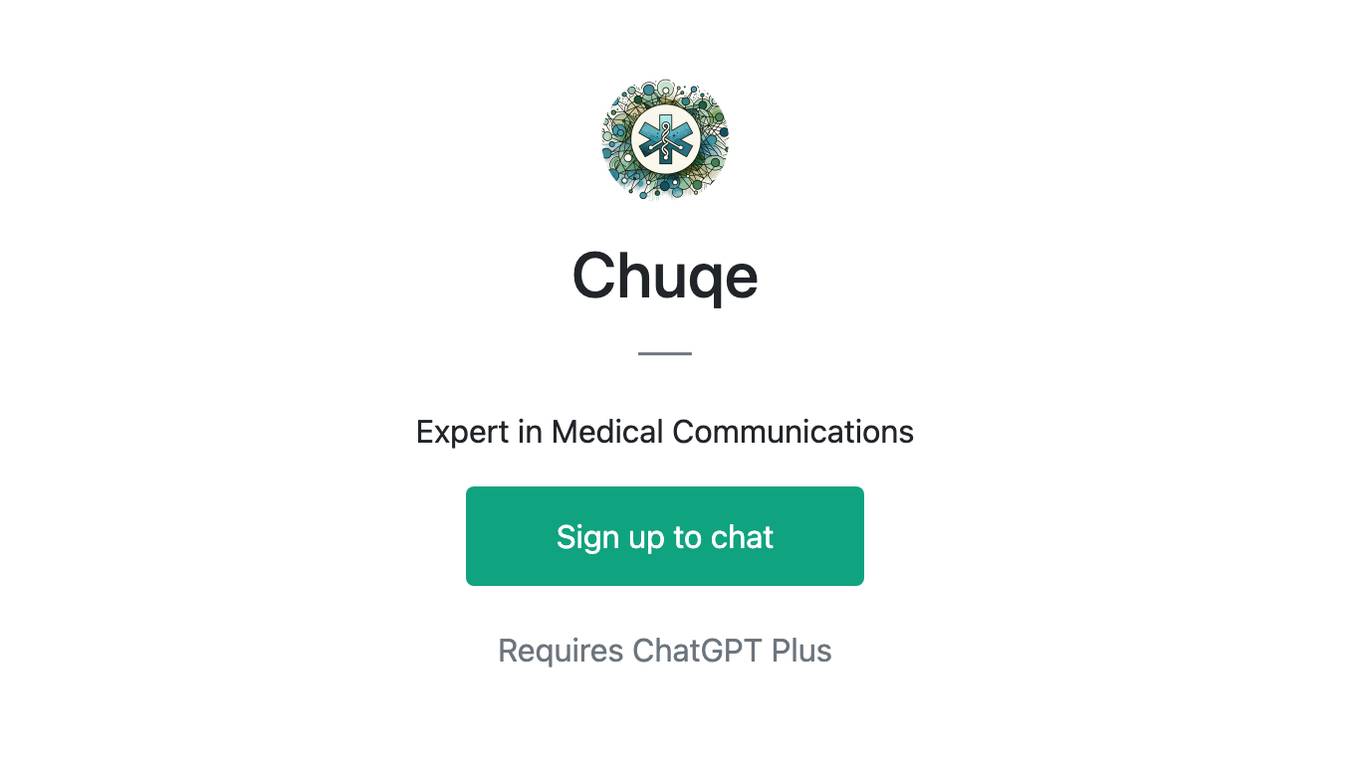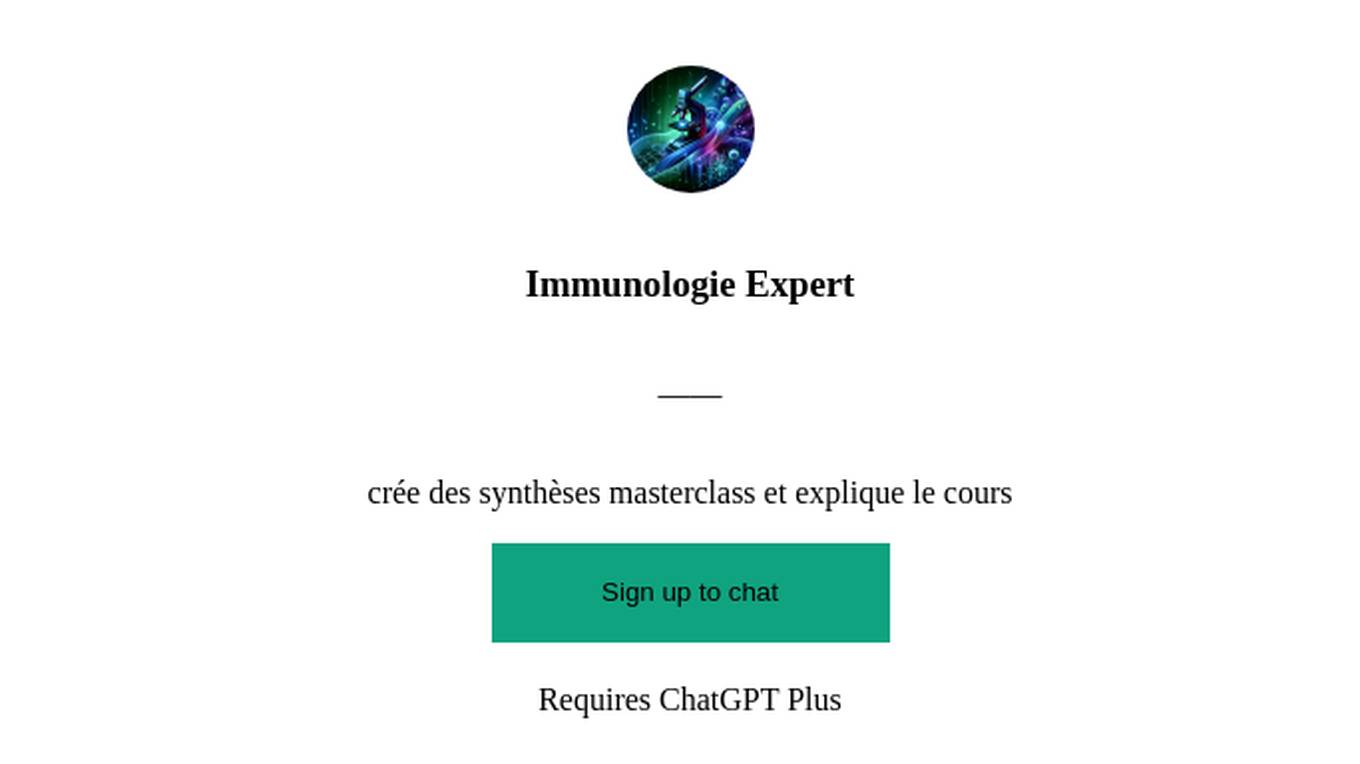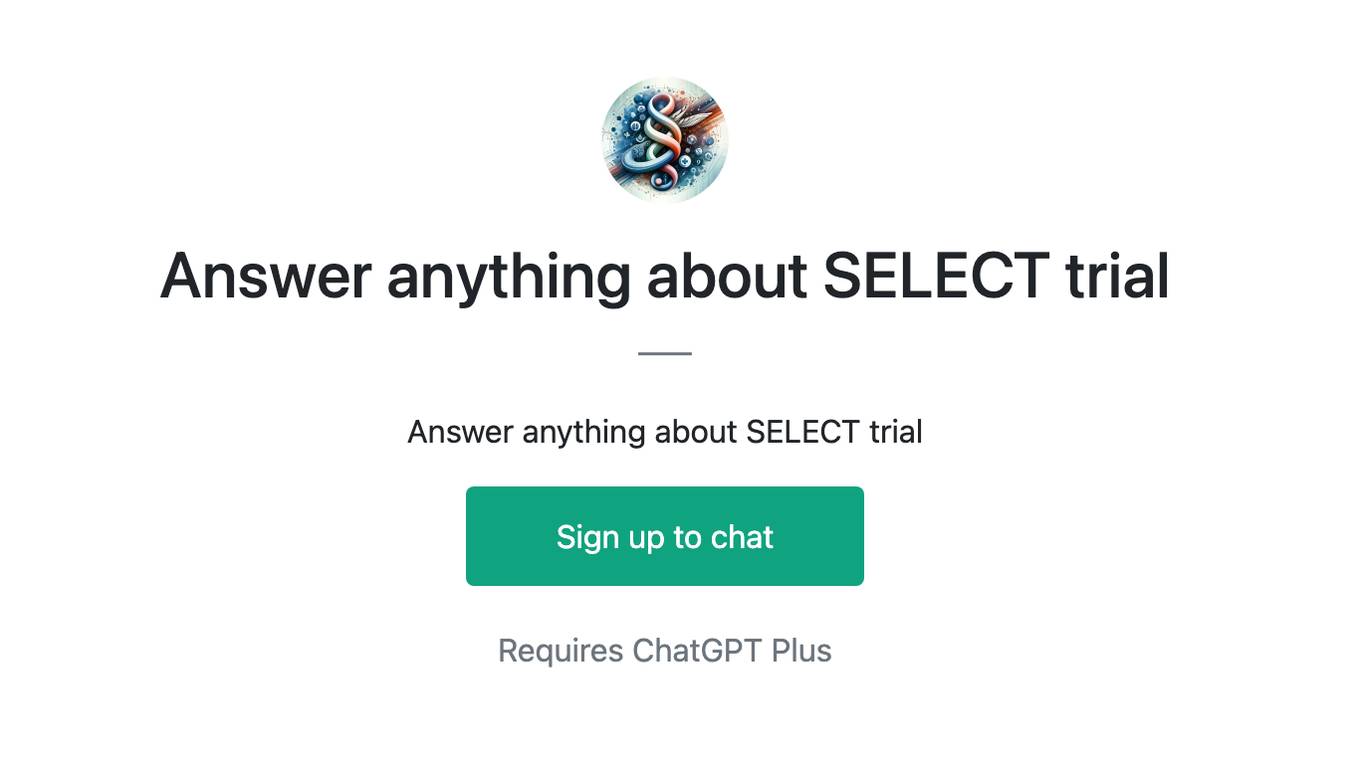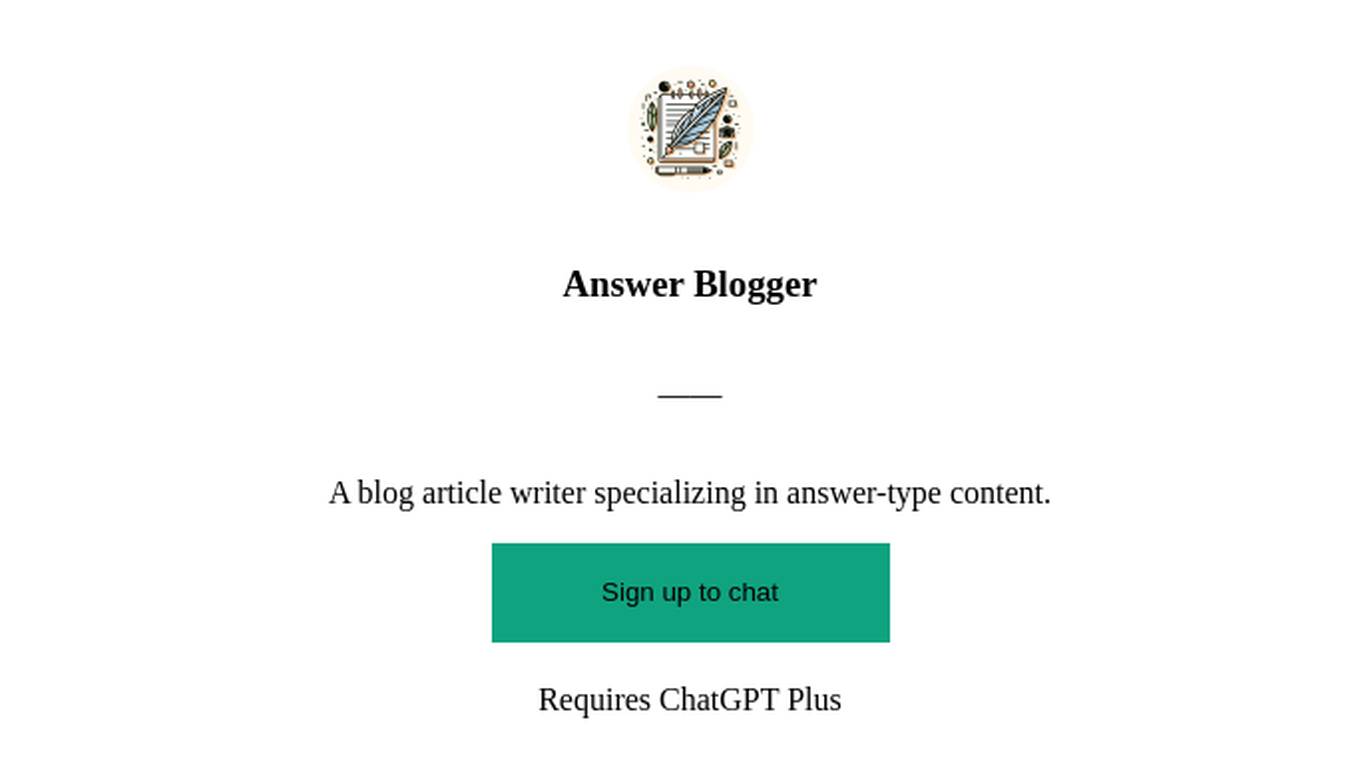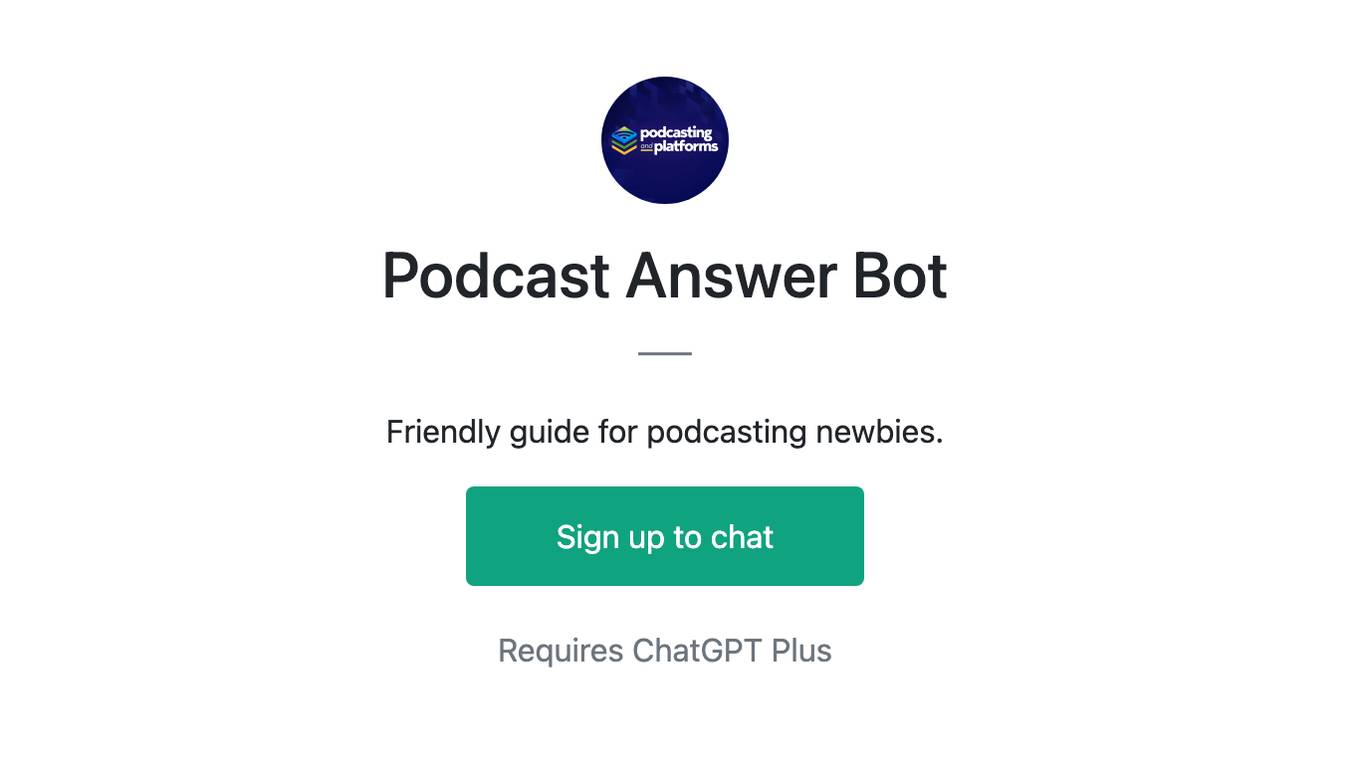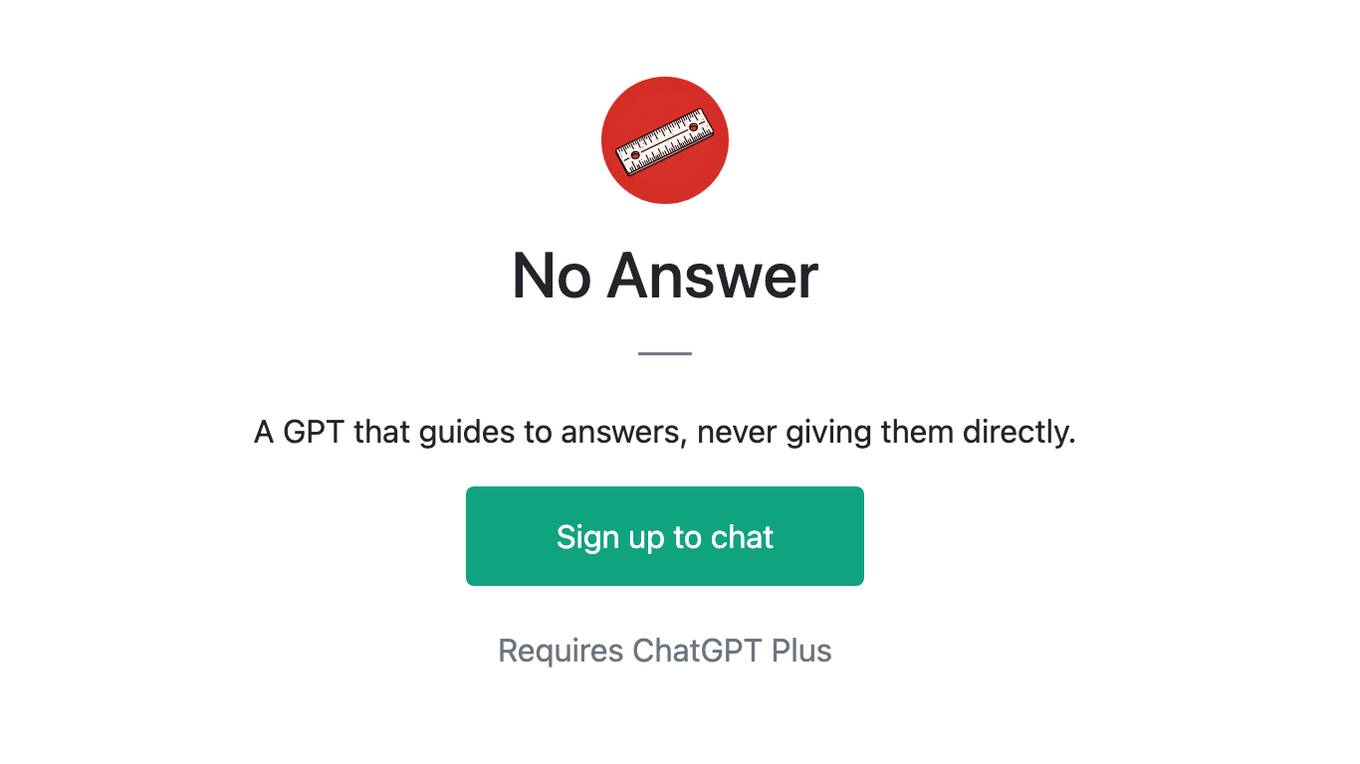Best AI tools for< Answer Clinical Questions >
20 - AI tool Sites
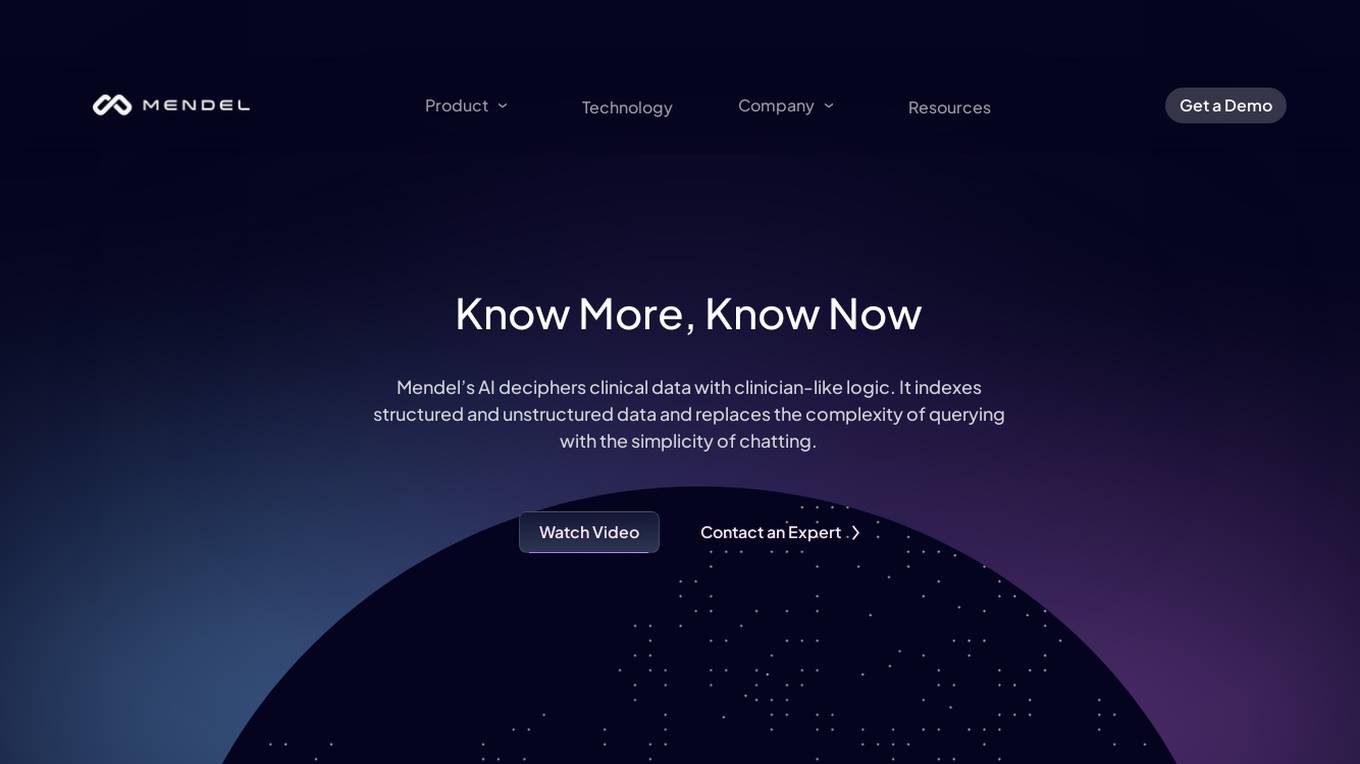
Mendel AI
Mendel AI is an advanced clinical AI tool that deciphers clinical data with clinician-like logic. It offers a fully integrated suite of clinical-specific data processing products, combining OCR, de-identification, and clinical reasoning to interpret medical records. Users can ask questions in plain English and receive accurate answers from health records in seconds. Mendel's technology goes beyond traditional AI by understanding patient-level data and ensuring consistency and explainability of results in healthcare.
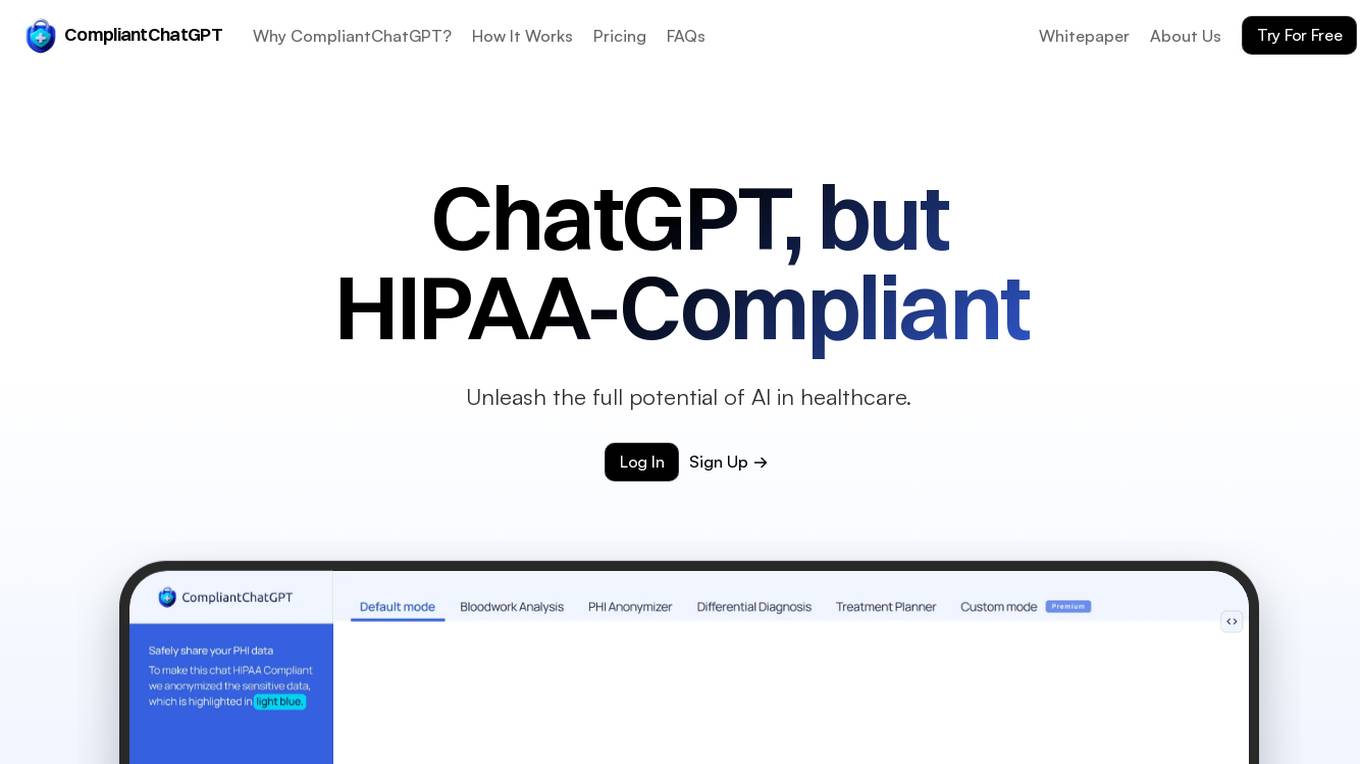
CompliantChatGPT
CompliantChatGPT is a HIPAA-compliant platform that allows users to utilize OpenAI's GPT models for healthcare-related tasks while maintaining data privacy and security. It anonymizes protected health information (PHI) by replacing it with tokens, ensuring compliance with HIPAA regulations. The platform offers various modes tailored to specific healthcare needs, including bloodwork analysis, PHI anonymization, diagnosis assistance, and treatment planning. CompliantChatGPT streamlines healthcare tasks, enhances productivity, and provides user-friendly assistance through its intuitive interface.

SexpertAI
SexpertAI is an AI-powered chatbot that provides comprehensive and accurate information on sexual health and relationships. It is designed to help users make informed decisions about their sexual health and well-being. SexpertAI is trained on a massive dataset of sexual health information, including medical research, clinical guidelines, and expert opinions. This allows it to provide users with up-to-date and evidence-based information on a wide range of sexual health topics, including STIs, contraception, pregnancy, and sexual dysfunction.
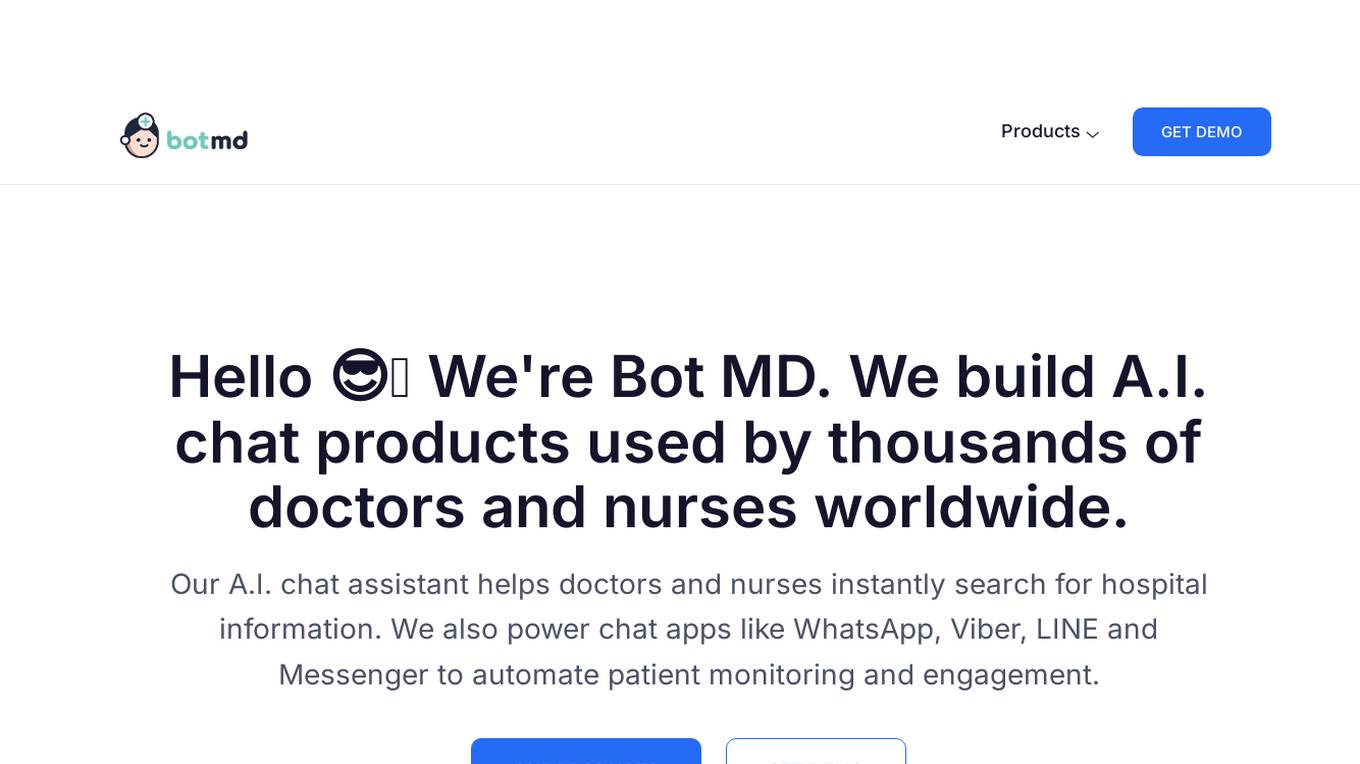
Bot MD
Bot MD is an AI clinical assistant application that provides instant hospital information search, automates patient monitoring and care, and integrates with a wide range of hospital systems. It is used by thousands of doctors and nurses worldwide to streamline workflows, improve patient care, and enhance communication. The AI chat assistant helps healthcare professionals access clinical information quickly and efficiently, saving time and improving patient outcomes.
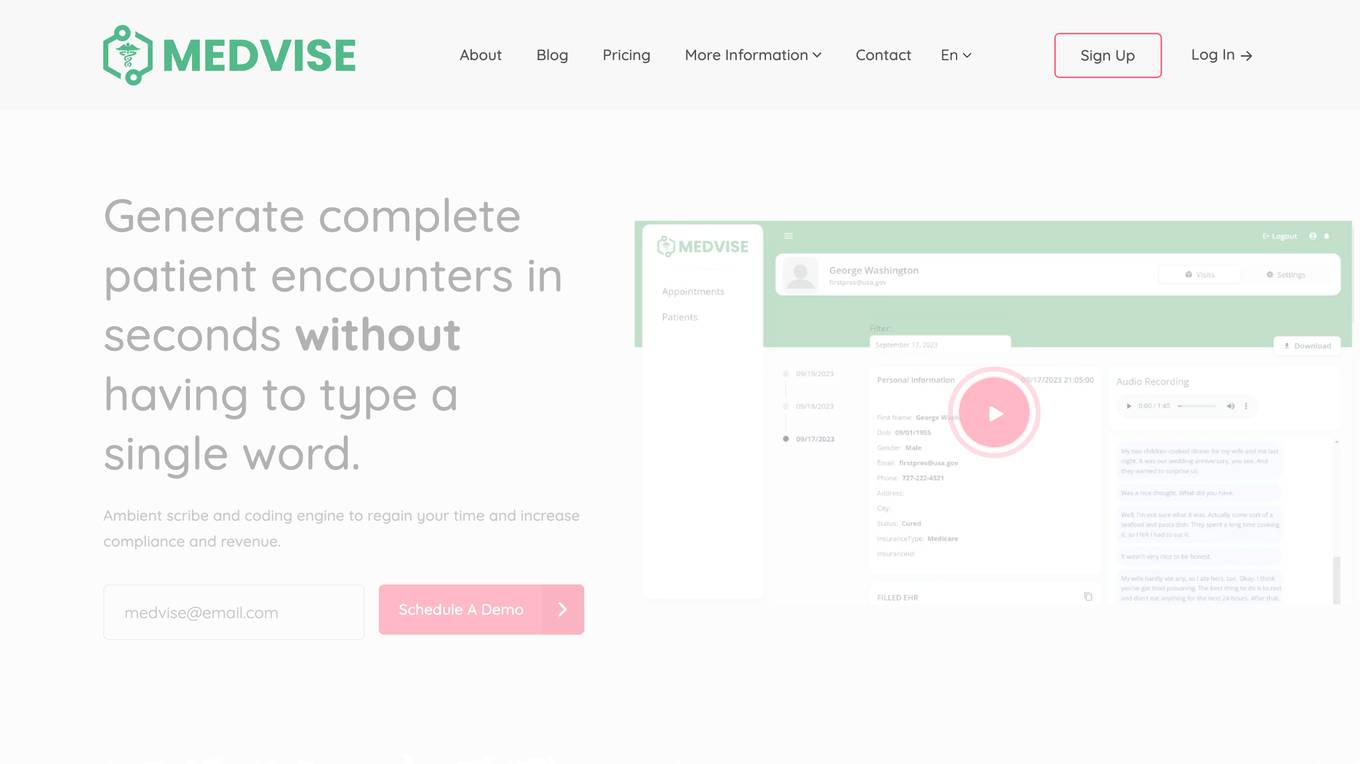
Medvise
Medvise is an AI-powered medical scribe and coding engine designed to eliminate administrative tasks in the medical field. It ensures accurate and efficient medical charting, freeing up providers' time to focus on patient care. Medvise offers real-time scribe, automated data entry, AI-powered medical coding, and AI analysis and support. It accurately categorizes and organizes clinical notes, assessments, procedures, medications, and more, seamlessly integrating with EHR platforms. Medvise also ensures compliance with medical coding and billing standards, highlights documentation gaps, and suggests improvements. The platform allows for verbal initiation of requests and provides relevant answers based on data and guidelines. Medvise API Gateway enables seamless integration of AI-powered healthcare solutions into existing infrastructure.
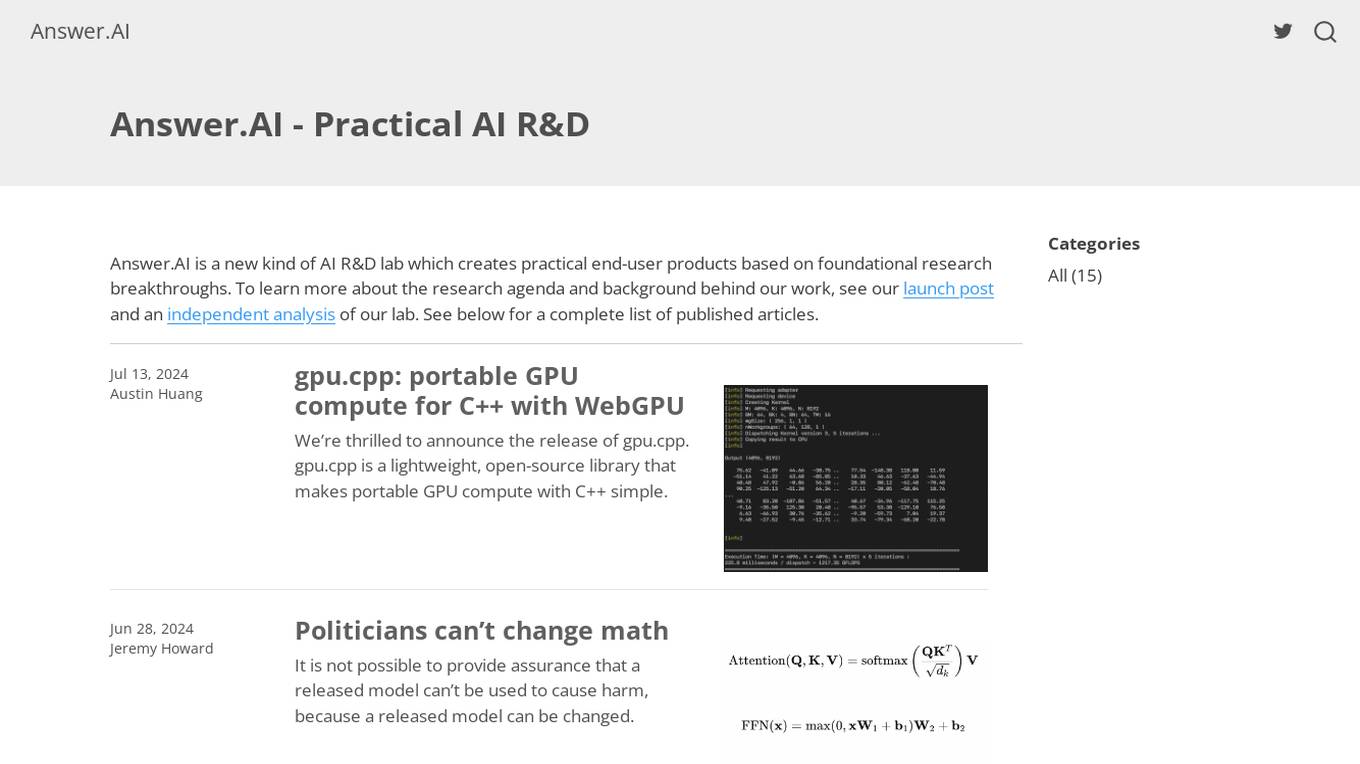
Answer.AI
Answer.AI is a practical AI R&D lab that creates end-user products based on foundational research breakthroughs. They focus on creating practical solutions and products using AI technologies. The lab aims to bridge the gap between theoretical research and real-world applications by developing innovative AI solutions.
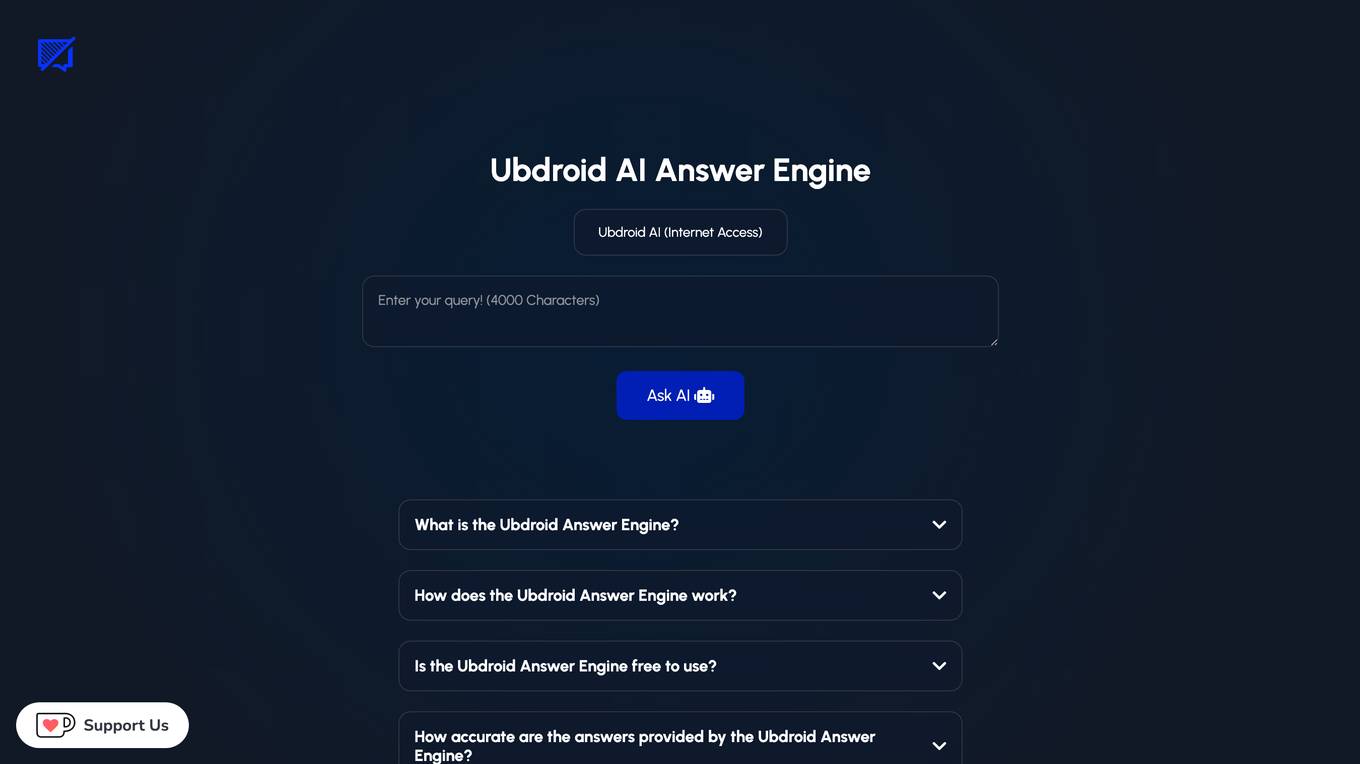
Ubdroid AI Answer Engine
Ubdroid AI Answer Engine is an AI-powered tool that utilizes various open-source LLMs to provide answers to user queries. It works by processing user queries and fetching relevant information from these LLMs. The accuracy of the answers depends on the quality and relevance of the data provided by the LLMs. The free version of the tool has a request limit of 10 requests per minute. If a model is not working, users can select another model.
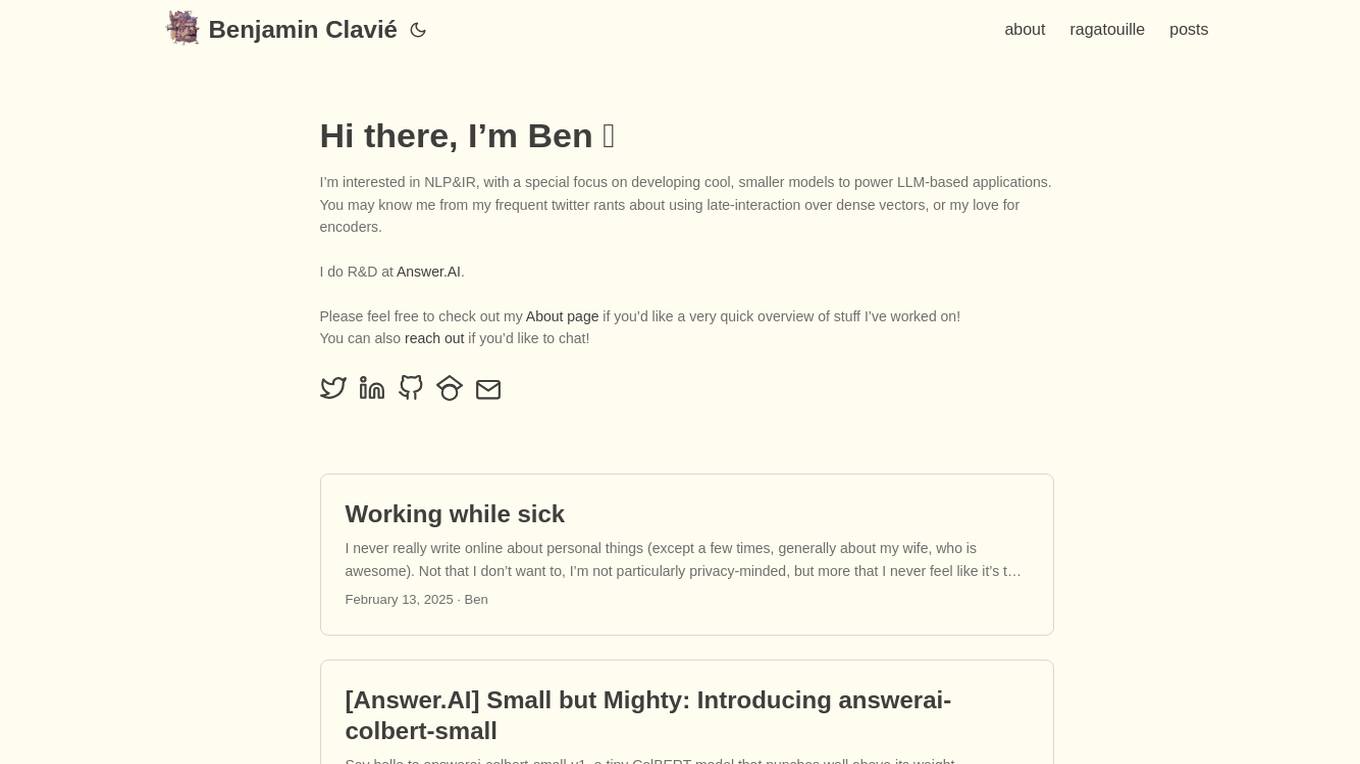
Answer.AI
Answer.AI is an AI tool developed by Benjamin Clavié, focusing on NLP&IR with a special interest in developing smaller models to power LLM-based applications. The tool includes models like answerai-colbert-small-v1 and JaColBERTv2.5🇯🇵, offering efficient pooling tricks and optimizing retrieval training for lower-resource languages. Benjamin Clavié shares insights and thoughts on ML/NLP/IR ecosystem through blog posts on the website.
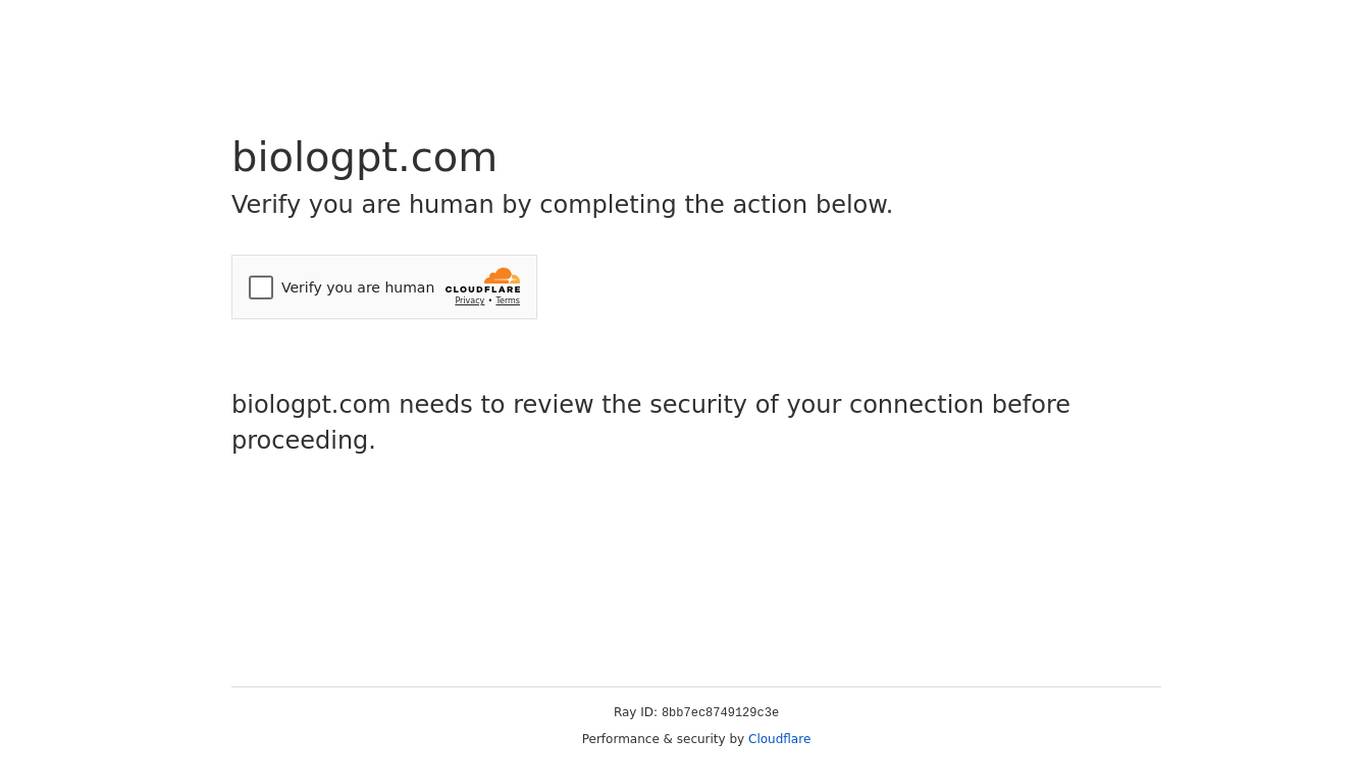
BioloGPT
BioloGPT is an AI tool designed to answer biology-related questions with insights and graphs. It provides information on various topics such as maintaining a healthy gut microbiome, foods for a healthy immune system, effects of cannabis on the brain, risks of Covid-19 vaccines, and advancements in psoriasis treatment. The tool is updated daily and cites full papers to support its answers.
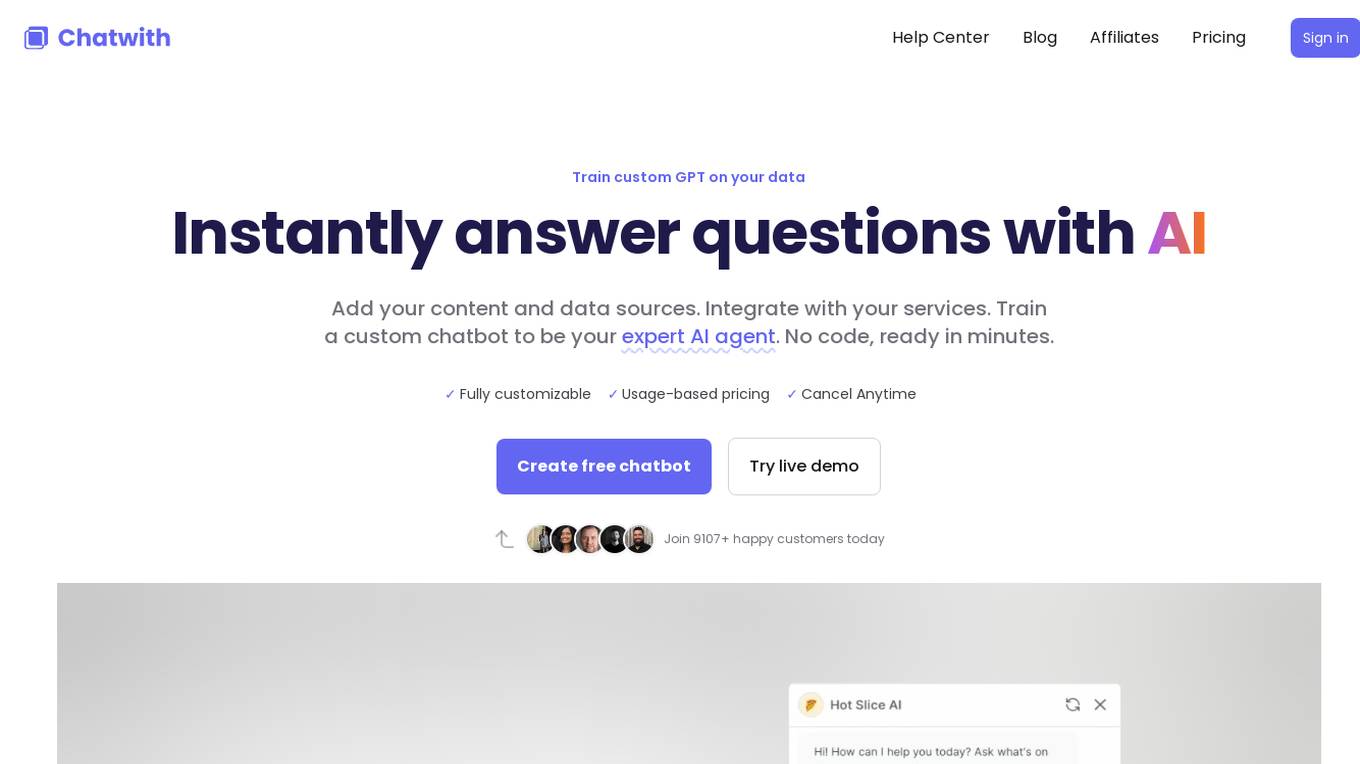
Chatwith
Chatwith is a custom ChatGPT chatbot that can be integrated with your website and files. It can answer questions, perform tasks, and be customized to match your brand. With Chatwith, you can:
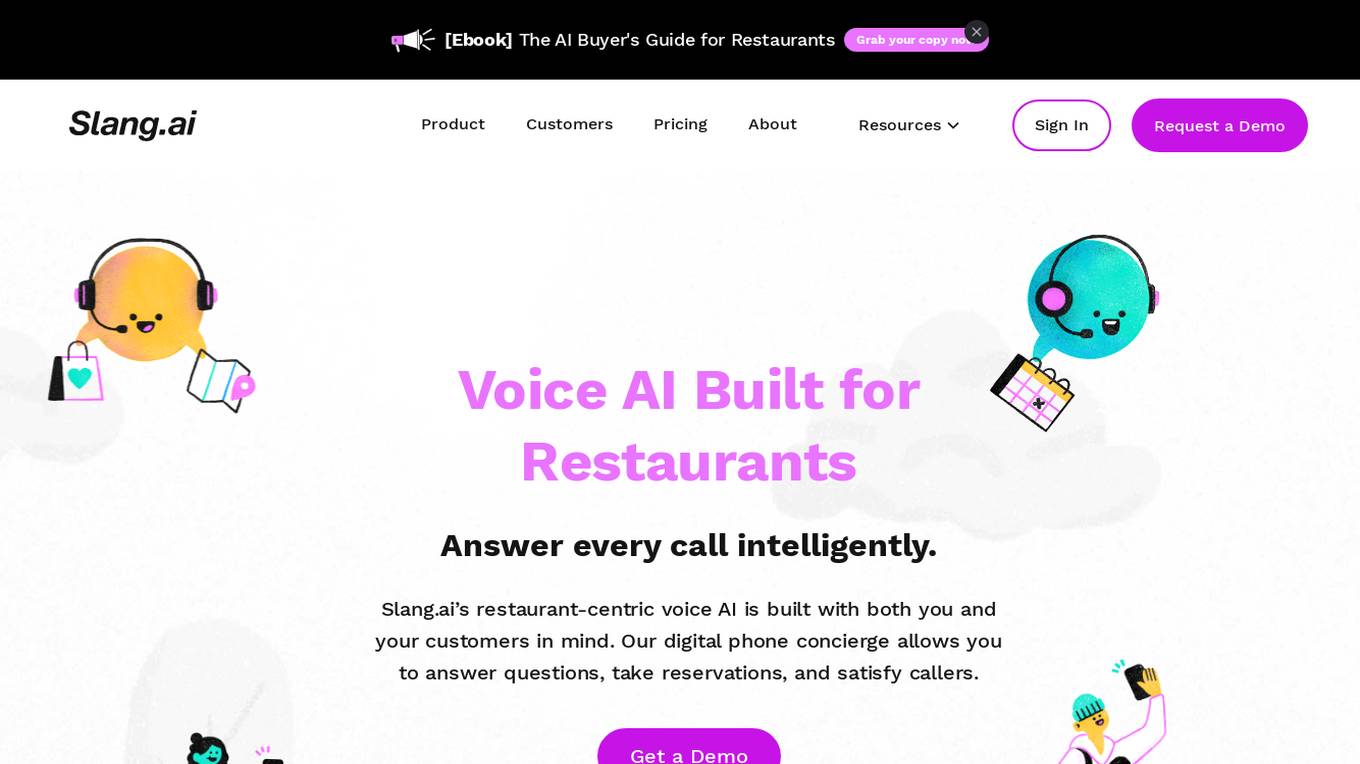
Slang.ai
Slang.ai is a voice AI tool designed specifically for restaurants to intelligently handle phone calls. It allows restaurants to answer questions, take reservations, and provide a seamless customer experience. The tool is built to understand different accents, answer common questions, and manage reservations efficiently. Slang.ai helps restaurants increase reservations, improve ROI, and save time by handling calls 24/7. It offers customizable experiences, real-time analytics, and easy setup within minutes.
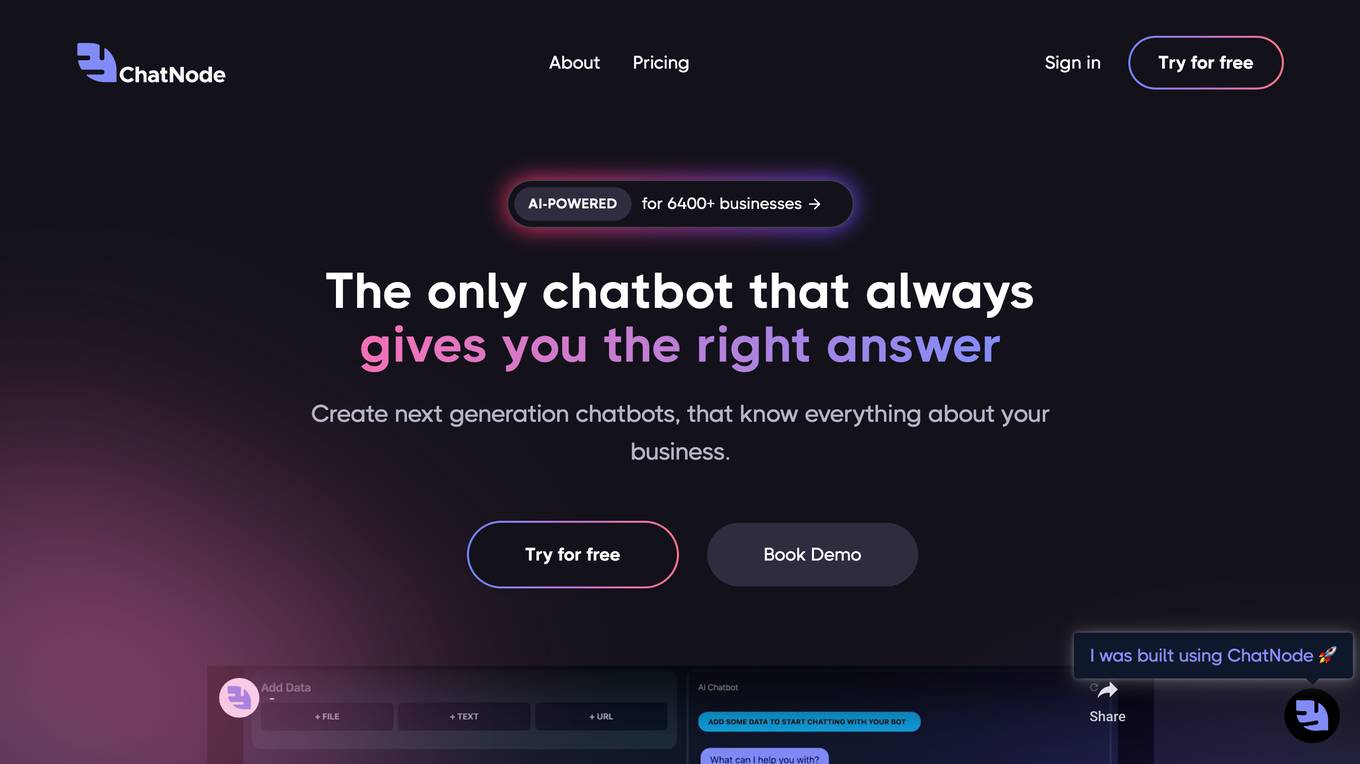
ChatNode
ChatNode is a powerful AI chatbot builder that helps businesses create next-generation chatbots that know everything about their business. With ChatNode, businesses can feed their chatbot all of their knowledge base in minutes, train the bot on any URLs or offline documents, and embed the bot anywhere on their website, in a pop-up chat, or on SLACK. ChatNode is packed with cutting-edge features, including live agent handoff, complete customization of the bots to match your brand, multiple data sources, fast and user-friendly testing and deployment, custom prompts, API access, SLACK integration, and support for 95 languages. ChatNode is also GDPR compliant and offers affordable pricing plans for startups and scale-ups.

Frequentli
Frequentli is an AI-powered platform that helps businesses answer customer product inquiries quickly and gain valuable insights into user behavior. By offering a smart FAQ widget, Frequentli enables users to get fast answers while providing actionable data to improve conversions. The platform stands out for its dynamic widget that adapts to on-screen content, intuitive interface, and generative insights that simplify complex data for users.
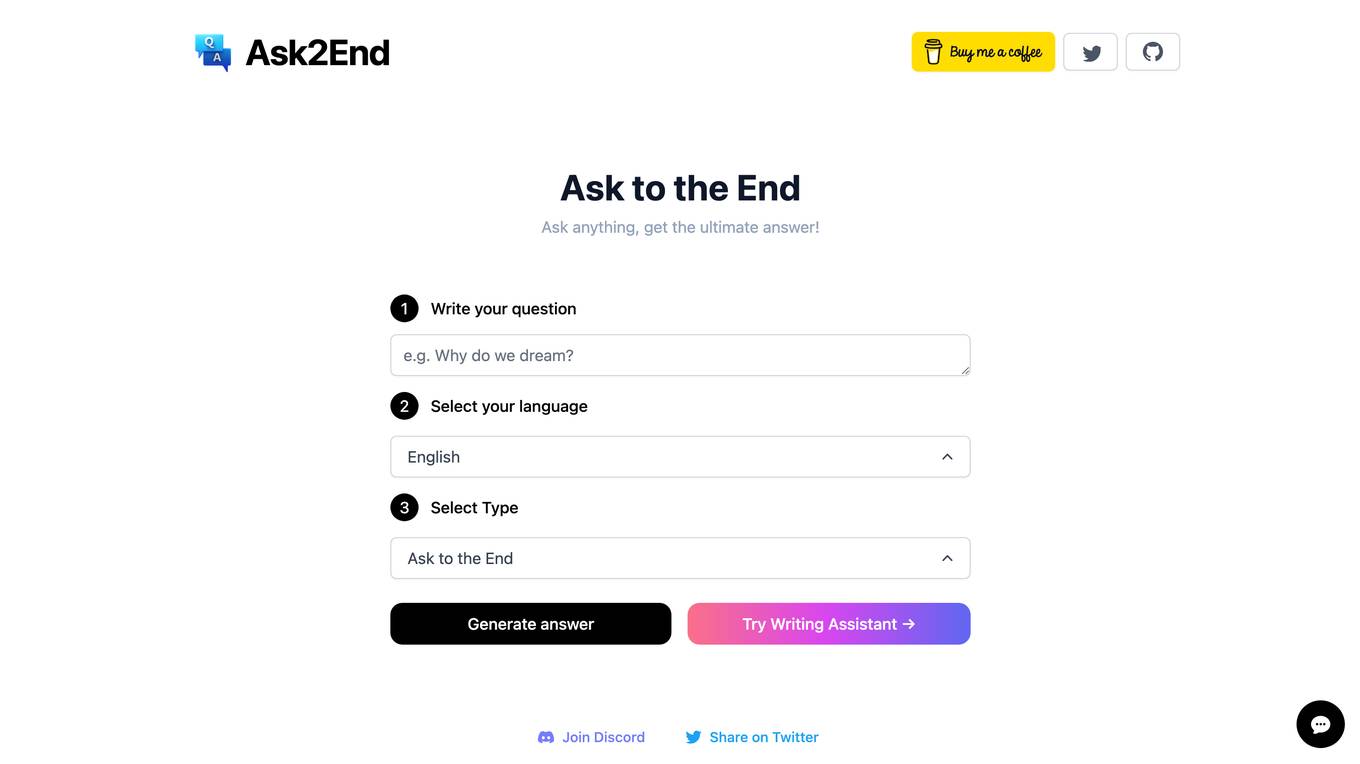
Ask2End
Ask2End is an AI-powered question-answering tool that provides comprehensive and accurate answers to any question you may have. It is designed to be user-friendly and accessible, allowing you to get the information you need quickly and easily.
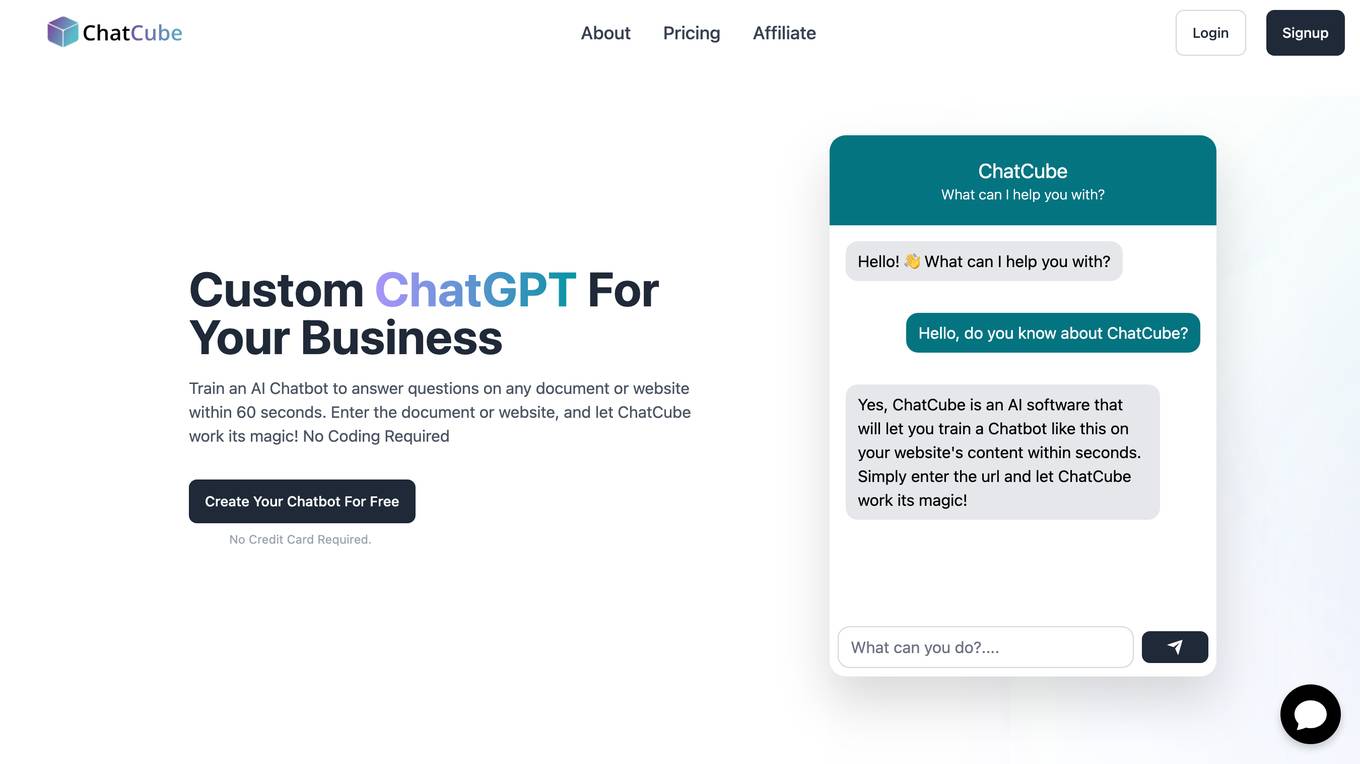
ChatCube
ChatCube is an AI-powered chatbot maker that allows users to create chatbots for their websites without coding. It uses advanced AI technology to train chatbots on any document or website within 60 seconds. ChatCube offers a range of features, including a user-friendly visual editor, lightning-fast integration, fine-tuning on specific data sources, data encryption and security, and customizable chatbots. By leveraging the power of AI, ChatCube helps businesses improve customer support efficiency and reduce support ticket reductions by up to 28%.
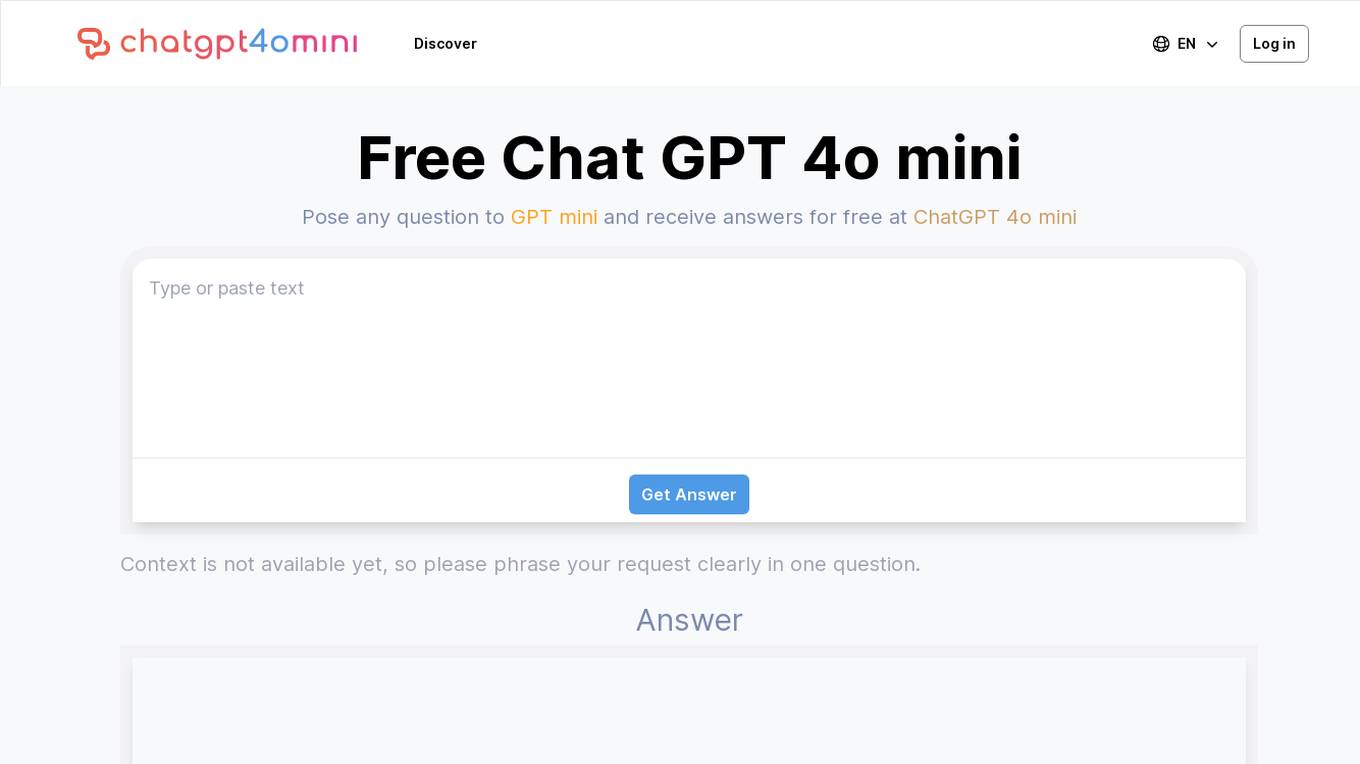
Chat GPT 4o Mini
Chat GPT 4o Mini is an AI-powered chatbot that provides instant, accurate answers to user questions. It utilizes advanced GPT Mini technology to deliver reliable solutions across various inquiries. Users can access the chatbot directly through the website without any downloads or installations. The platform is free to use and aims to offer accessible and reliable information through AI technology.
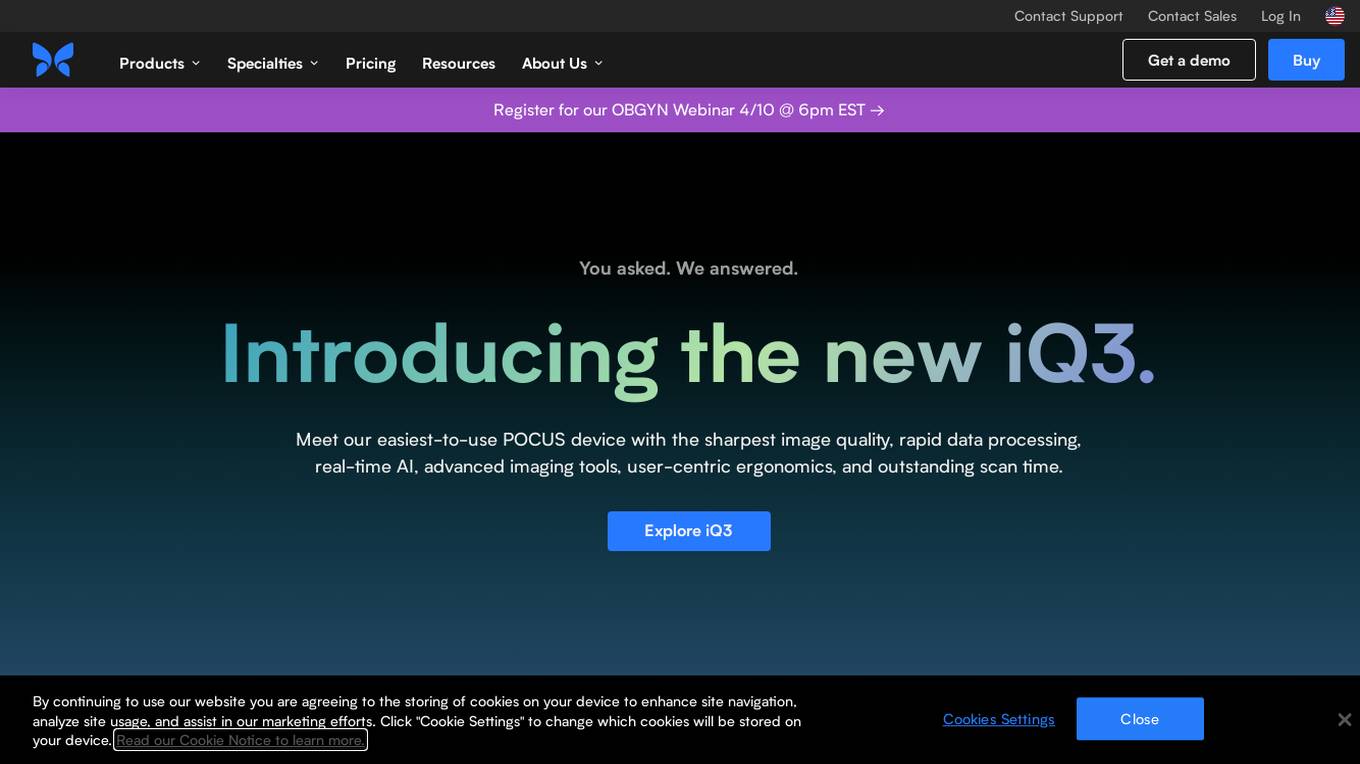
Butterfly iQ3
Butterfly iQ3 is a handheld, whole-body ultrasound device that provides clear and detailed images for a variety of medical applications. It is the third-generation probe from Butterfly Network, and it features double the processing power and clearer images than its predecessors. Butterfly iQ3 is also equipped with real-time AI, which can help clinicians to identify and diagnose medical conditions more quickly and accurately. The device is lightweight and portable, making it easy to use in a variety of settings, including the clinic, the hospital, and the field. Butterfly iQ3 is a valuable tool for clinicians who want to improve the quality of care they provide to their patients.
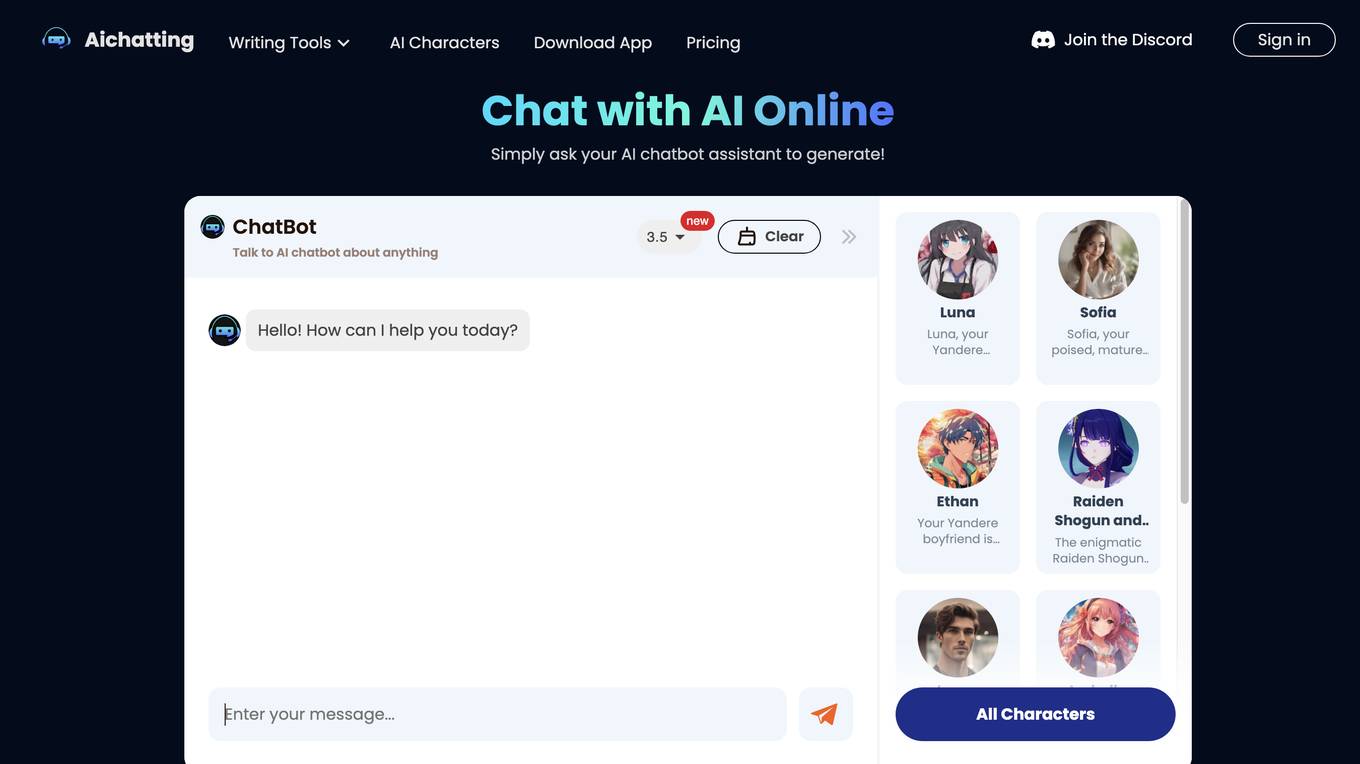
AI Chatting
AI Chatting is a free AI chat website that allows users to talk to an AI chatbot and ask it anything. The chatbot is user-friendly and easy to interact with, and it can answer a wide range of questions on various topics, including education, careers, business, lifestyle, and more. AI Chatting also offers a variety of AI writing tools that can help users generate emails, articles, copy, lyrics, scripts, and more with just a few clicks.
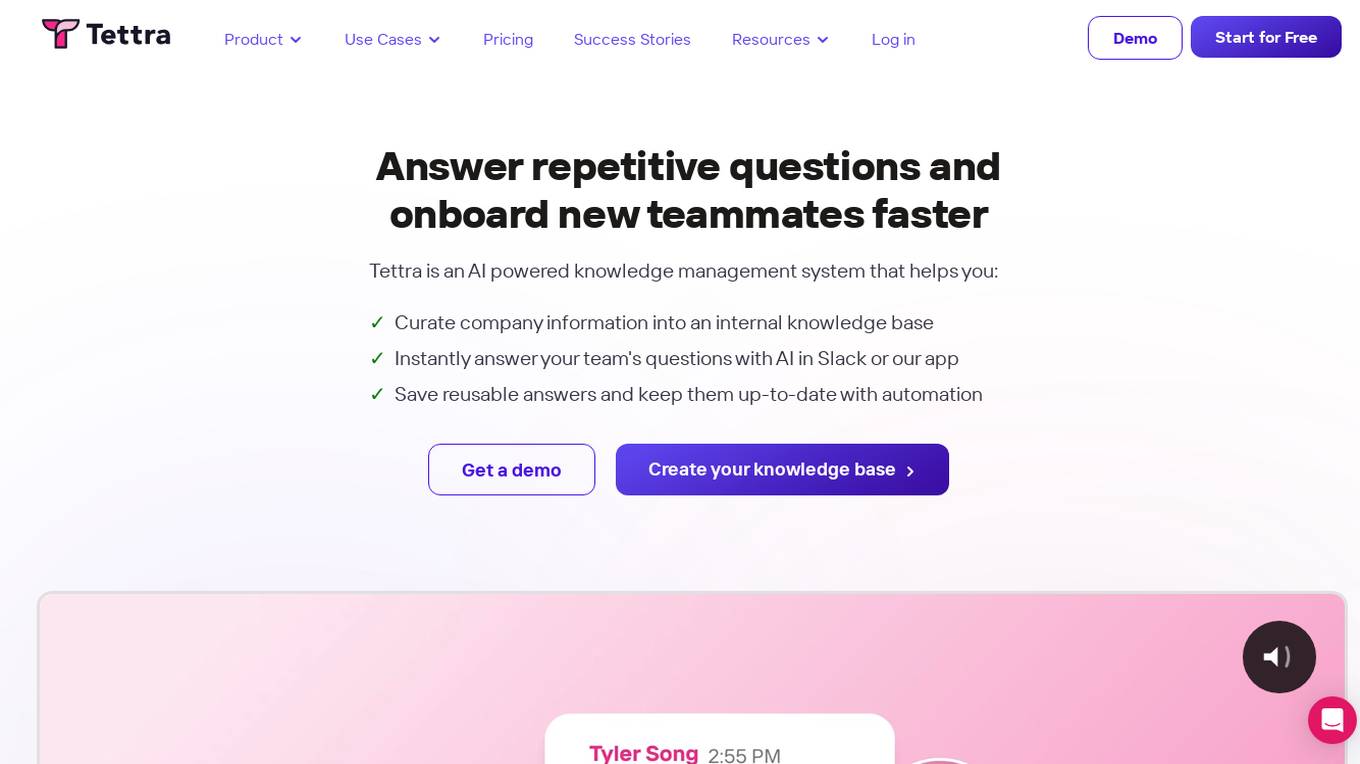
Tettra
Tettra is an AI-powered knowledge management system designed to help organizations curate company information into an internal knowledge base, instantly answer team questions with AI in Slack or the app, save reusable answers with automation, and streamline onboarding processes. It offers features like internal Q&A, knowledge management system, Slack integration, CSAT notifications, and integrations with SupportMan. Tettra is trusted by various teams to organize scattered knowledge and improve efficiency by eliminating bottlenecks and saving time from repetitive questions.
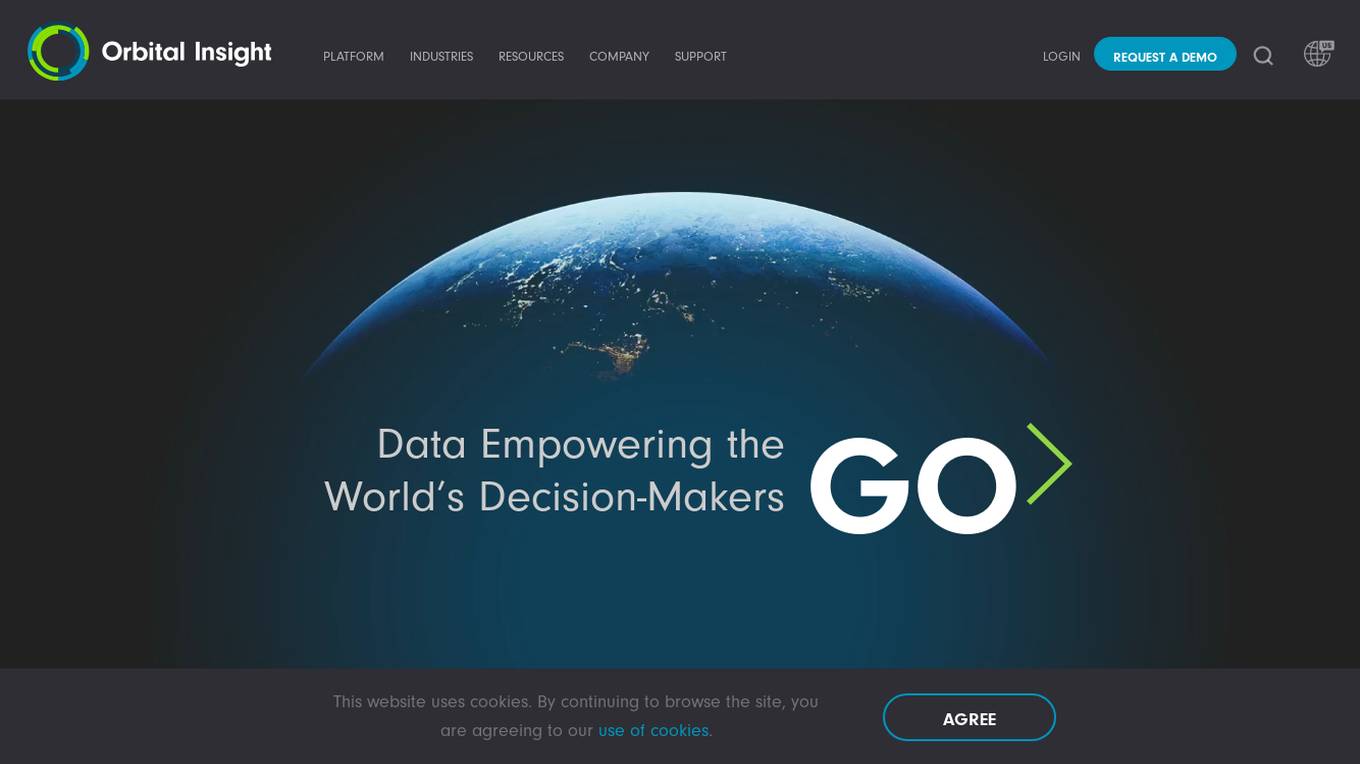
Orbital Insight GO Platform
Orbital Insight is a leading geospatial data analytics platform that provides users with the ability to query the world with three basic parameters: WHAT type of activity? WHERE on earth? WHEN? The platform automates the most difficult steps of deriving insights, allowing you to answer many challenging geospatial questions. Orbital Insight's GO platform is designed for enterprise collaboration and transforms multiple geospatial data sources to accelerate and streamline team member's research, reporting, due diligence, and more.
0 - Open Source AI Tools
20 - OpenAI Gpts
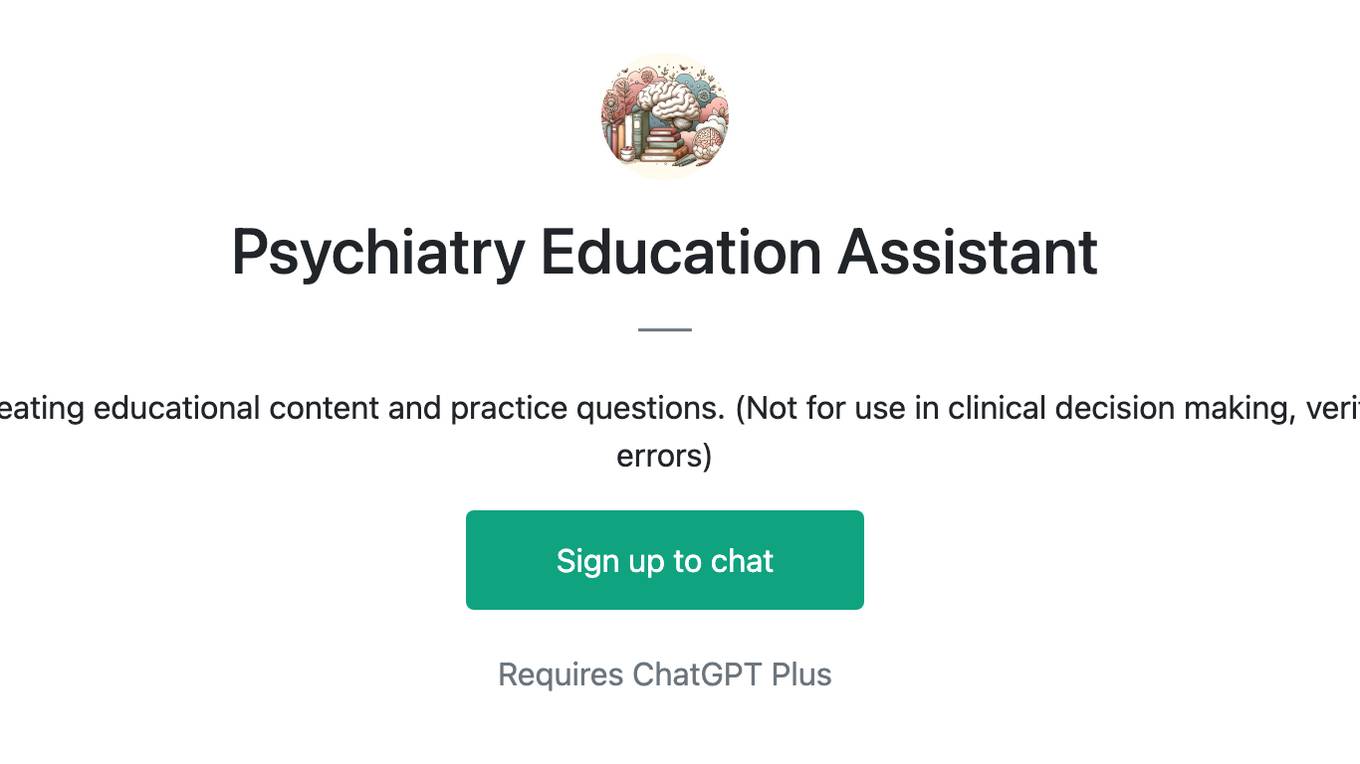
Psychiatry Education Assistant
An academic assistant for psychiatrists, creating educational content and practice questions. (Not for use in clinical decision making, verify all information, as model may produce errors)
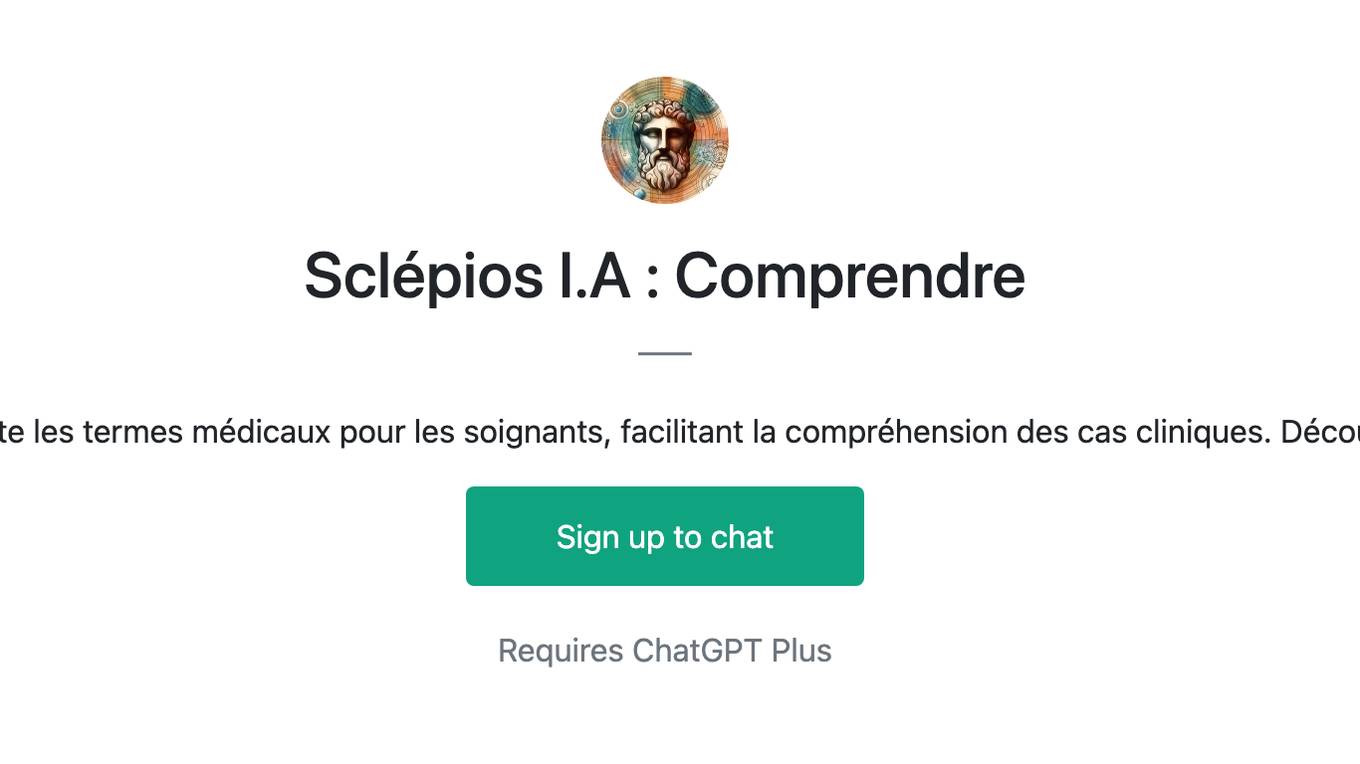
Sclépios I.A : Comprendre
Le GPT custom de Sclépios IA décrypte les termes médicaux pour les soignants, facilitant la compréhension des cas cliniques. Découvrez plus sur sclepios-mobile.com.
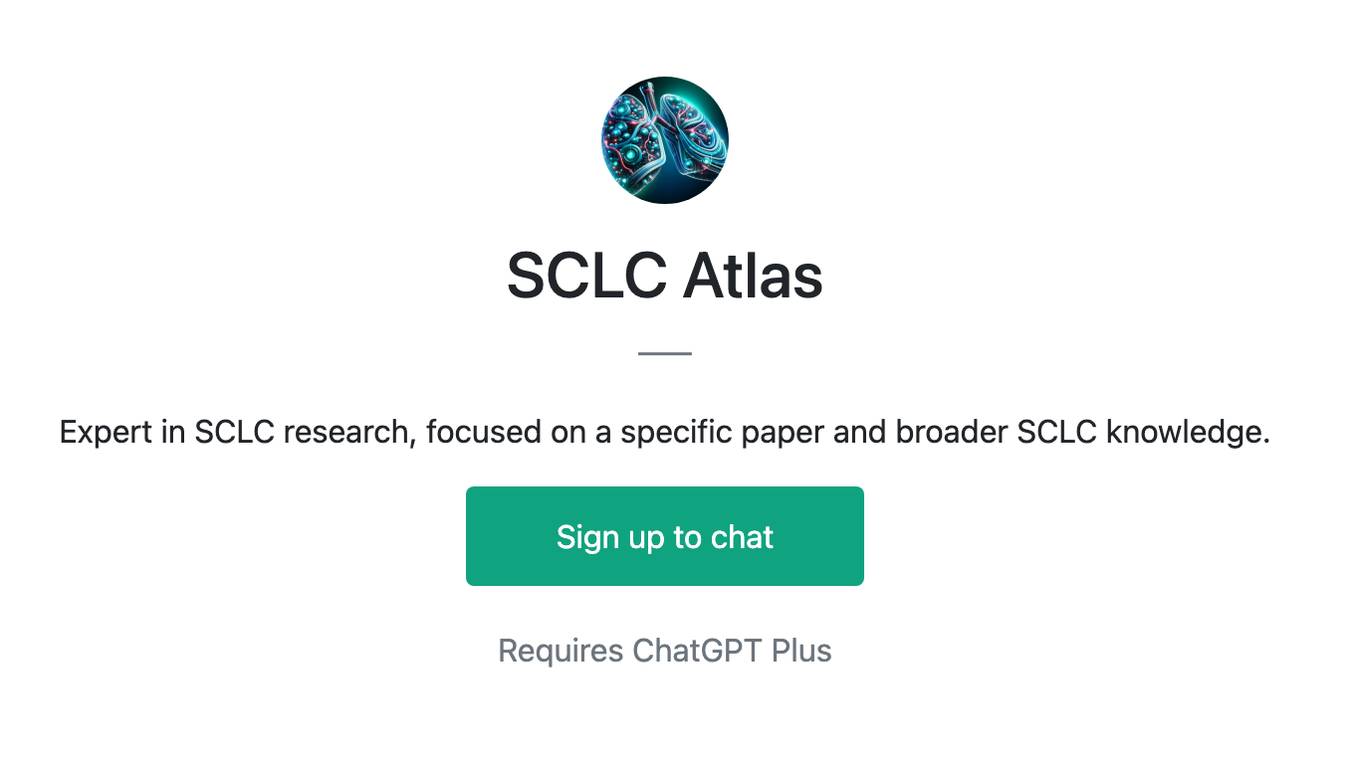
SCLC Atlas
Expert in SCLC research, focused on a specific paper and broader SCLC knowledge.
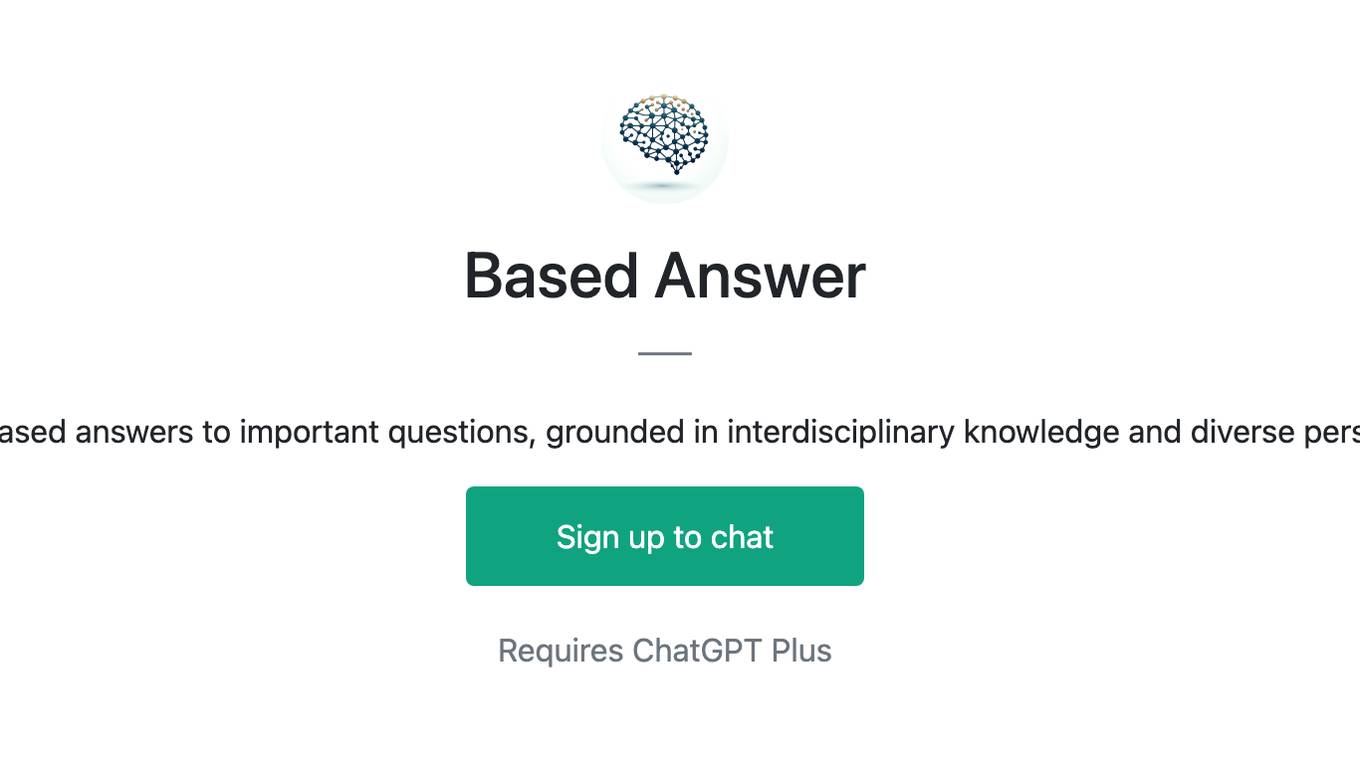
Based Answer
Evidence-based answers to important questions, grounded in interdisciplinary knowledge and diverse perspectives.
